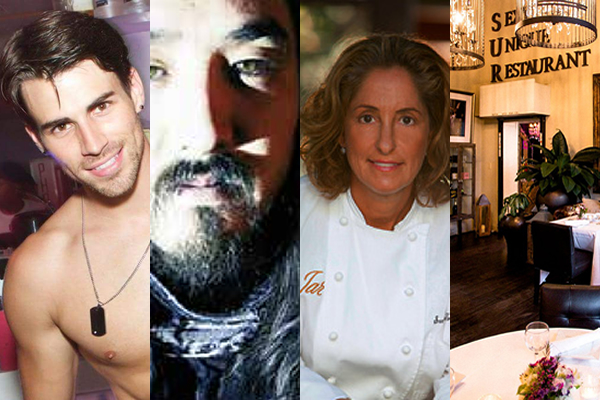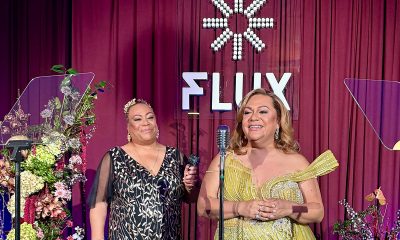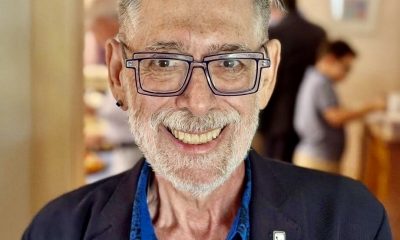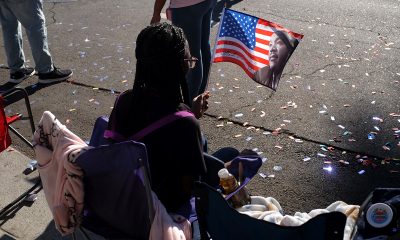a&e features
2018 Best of Gay LA Awards
All of your favorites, from bartenders to activists and more
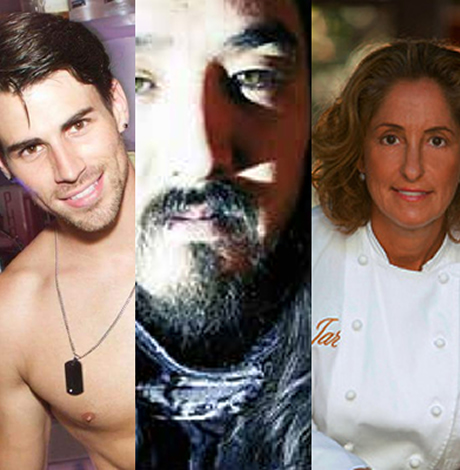
Welcome to the inaugural Best Of Gay LA Awards presented by the Los Angeles Blade. There were hundreds of nominations in 25 categories and thousands of votes. Here we present your picks for the best LA has to offer along with editors’ choices in most categories.
LOCAL HERO: JON DAVIDSON
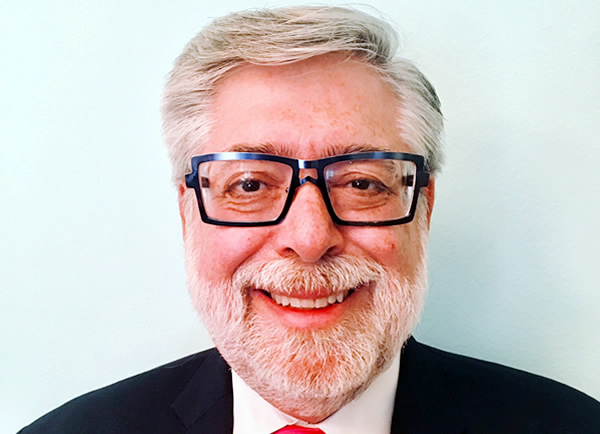
Jon Davidson (Photo courtesy of Davidson)
Jon Davidson has been fighting for the rights of the underdog for most of his adult life.
An attorney focused on the LGBTQ community and people living with HIV, virtually since graduating from Yale Law School in 1979, Davidson has fought and won some of the most important cases facing LGBT Americans. But, as he says, ultimately it’s not whether you win or lose, but how you play the long game.
“What I’ve learned is that one of the realities of doing the LGBT rights litigation that I’ve spent most of my career doing, is that sometimes you can lose the case, but still win. Because those sorts of cases end up educating people about the things that are wrong,” Davidson told the Los Angeles Blade.
He became interested in politics in high school, around the time of Stonewall. He was boycotting grapes and lettuce in support of California farm workers and he protested the Vietnam War. He says he was excited about political change. He started taking cases pro bono.
His first big case was no small potatoes. He sued the city of Los Angeles on behalf of homeless people. Not long after, he says, in 1985 a lot of his friends started to get sick. He started looking for a way he could help.
Davidson teamed up with attorney and activist Susan McGreevy, who was at the ACLU at the time. She enlisted his help in writing the first brief to the U.S. Supreme Court about AIDS. It was about whether people with contagious diseases could be considered disabled and protected against discrimination under a law called the Rehabilitation Act of 1973. The goal was to convince the courts that AIDS was a disabling condition.
“At the time, the Reagan administration was arguing that contagious diseases couldn’t be considered disabilities because that would mean that people with AIDS would be protected from discrimination,” Davidson says.
Another local case got a lot of attention when Davidson was working with a gay rights organization that no longer exists, on behalf of a man threatened with eviction for hanging a gay Pride flag off his apartment’s balcony. The building’s argument was that people would think it was a “gay building.” Davidson argued that people put American flags on their balconies, so why not a Pride flag?
Davidson left private practice in 1988 to work for the ACLA of Southern California. He was there for eight years, and then joined Lambda Legal, where he worked for more than 20 years.
It was Davidson’s work on a case against the Boy Scouts of America that brought much national acclaim. He was the lead lawyer on the Curran v. Mount Diablo Council of the Boy Scouts of America, a case that went to California Supreme Court. He lost the case, but it was part of the fight to get people to understand that the Boy Scouts were engaging in discrimination.
Davidson also helped out on the Dale case, in which the U.S. Supreme Court held that the constitutional right to freedom of association allows a private organization like the Boy Scouts, to exclude a person from membership when “the presence of that person affects in a significant way the group’s ability to advocate public or private viewpoints.” In a 5-4 decision, the Supreme Court ruled that opposition to homosexuality is part of BSA’s “expressive message” and that allowing homosexuals as adult leaders would interfere with that message. It reversed a decision of the New Jersey Supreme Court, which had determined that New Jersey’s public accommodations law required the BSA to readmit James Dale, who the BSA expelled after Dale went public about being gay.
Davidson says despite losing those cases, the suits against the Boy Scouts outed the organization as discriminatory and ultimately led to a lot of pressure on them to change their position – both social and financial pressure.
“I used to joke that I’ve spent the bulk of my career fighting for LGBT people to serve in the military, get into the Boy Scouts, serve in the Los Angeles Police Department, and to get married, but I didn’t want to do any of those things. But those are four of the most conservative institutions we have in this country and they all in many ways epitomize being an American citizen,” Davidson says.
He and his longtime partner celebrated their 13th anniversary this year, which they count from the time they moved in together.
“I believe that an attack on any member of this nation or the world is an attack on all of us. But I decided more than 30 years ago I wanted to put my professional energies into and work on behalf of my community, which I define as the LGBT community and those living with HIV. That’s what spoke to me and where I felt there was a need,” he says. But, he adds, “A big part of the battle is also to remember that our community also includes several other groups who’ve been targets of the Trump administration – poor people, people of color, Muslims, people from other countries, you name it – it’s frightening. Our community needs to address the fact that many of the gains we made didn’t really help those most marginalized in our community.” (REBEKAH SAGER)
BEST BARTENDER: ANTHONY SALDANA
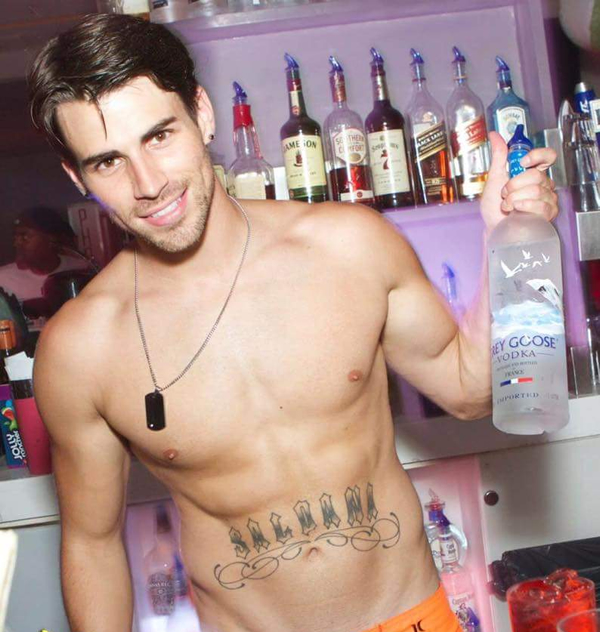
Anthony Saldana (Photo by Brett Saari Photography)
He prefers to be called a bartender rather than a mixologist, but Anthony Saldana is Micky’s top man behind the bar.
“We are more fine-tuned for speed and agility than mixing fancy drinks, because it’s always so busy,” Saldana told the Los Angeles Blade.
Born and raised in Ontario, in the inland empire, Saldana has lived in LA for the last 10 years, and worked at Micky’s for most of that time.
His first job after finishing UC Riverside was at Target as an executive manager. He says he was making $70,000 but on his first visit to Weho, a friend came running out of Micky’s with his shirt off, and told him they were hiring.
“I went in and spoke with the manager, who tore my shirt off in the office. He takes one look at me, and says I can start Monday. I told him about my Target gig and what I was making. He laughed at me and said I’d make double that,” he says.
Saldana waxes poetic about the days before the straight crowd discovered Weho.
He explains that straight guys come in to hit on drunk girls, but they don’t drink as much.
Trained using YouTube videos, this is the fourth year he’s won a Best Bartender title. In 2013, Grindr awarded him Best Bartender. He was flown to Vegas to receive the award.
“I don’t know why I keep winning, because I’m kind of an asshole,” he admits sheepishly. He adds, “If you come into my bar, and you act shitty I’m going to call you out on it. I’m very protective of my customers. I’ve jumped over the bar and thrown people out. I take shots with all of my customers. They literally love it.”
Saldana left home at 17 to “do his own thing.”
Now fairly distant from his family he says people don’t get to choose to be born into a family. “I want to choose who I love. I don’t want to be forced to love people I don’t even get along with. I travel a lot, and I take my friends wherever I go.”
His family found out about his being gay via social media. He almost married a girl. He has some complicated views on being gay, and says he gets pretty deep with customers about them all the time.
“I was born a straight man. I was in love with this female, it wasn’t until my sophomore year I had my first gay experience. I think as a child something very small could alter your thought process. I feel like the gay community always says ‘oh, you’re born gay,’ but if 10 percent of the community is born different than the other 90 percent, then that would make it a disability. I would hate to think that being gay is a disability. Personally I don’t want to be thought of as born gay… But, I’m gay now.
“I definitely appreciate a beautiful female though… and have this girl Natalie in my life that I call my wife. We’re inseparable and we do everything together, and I swear she would get married in a heartbeat, but sexually I just can’t do it. I associate with being gay,” Saldano says.
Single and dating, he has a staunch rule about never dating customers. He’s pressured a lot by men, and says he’s had to tell people he’s straight because it’s easier than telling men he’s not interested.
Despite turning a few guys away, Salgado gets gifts — lots of them. At Christmas he received a Cartier love band worth $10,000. “I mentioned that I’d always wanted one, and the next thing you know it’s getting screwed on my wrist,” he says. He’s been given a Mercedes, taken on trips, and even had someone give him money for his sick father.
“I mean people will give 10 to 20 percent to a church, whereas in the gay community they’ll give 20, 30 or 40 percent to the bars,” he says.
Although he’s known by the tattoo inked on his flat stomach, complete with washboard abs, the days of bartending shirtless are over.
A gym rat, Saldano says to keep his liver from completely failing, he only does shots of tequila, and his favorite is Don Julio anejo – always with a slice of orange. (REBEKAH SAGER)
MICKY’S
8857 Santa Monica Blvd.
310-657-1176
BEST BARTENDER, EDITORS’ CHOICE: CORY ZWIERZYNSKI
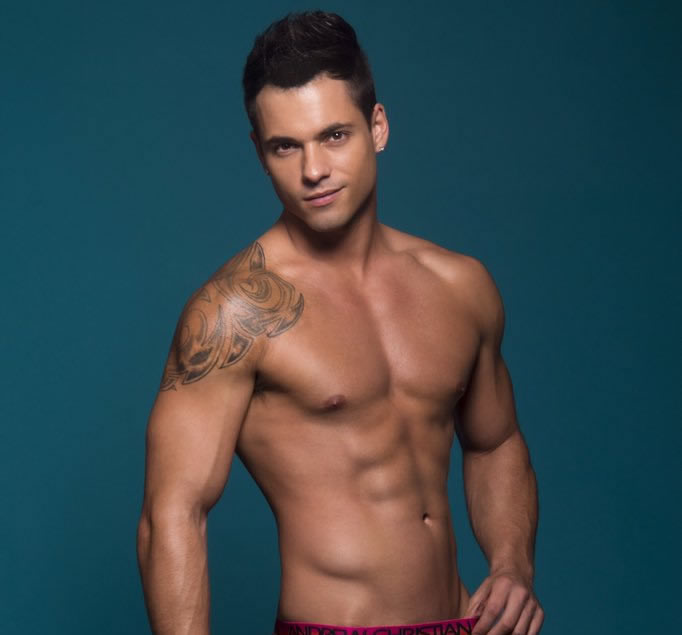
Cory Zwierzynski (Photo courtesy of Zwierzynski)
Bartender and star of “What Happens at The Abbey,” Cory Zwierzynski is the editors’ pick for Best Bartender. For nearly 25 years, The Abbey has dominated gay nightlife in West Hollywood. And Cory is almost as famous, thanks to his starring role on “What Happens at The Abbey.”
“When you start working at The Abbey,” Corey told the Los Angeles Blade, “it’s like joining a big family. We don’t just work together; we have a good time together. We have so many regulars at The Abbey that they are all part of the family too.”
Corey’s favorite moment at The Abbey so far? “People dancing to Diana Ross’ music on the dance floor with Diana Ross. It doesn’t get more memorable than that.”
THE ABBEY
692 N Robertson Blvd.
310-289-8410
BEST DJ: STEVE AOKI
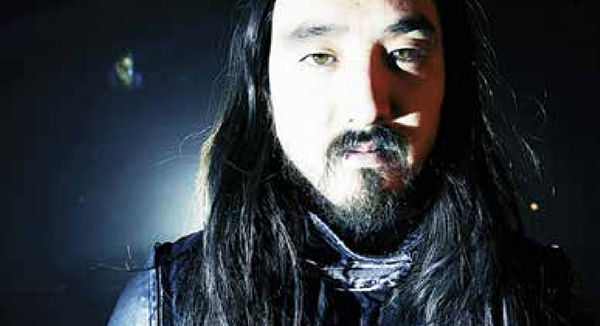
Steve Aoki (Photo courtesy of Aoki)
Steven Hiroyuki (Aoki) is one of the world’s most influential DJs. He certainly has the whole EDM circuit world jumping at venues around the world. But he’s really just an ordinary guy who grew up Newport Beach and attended USCB.
He holds degrees in feminist studies and sociology. But while in college, a spark captured his imagination when he produced a do-it-yourself record and began running underground concerts at Isla Vista, a section of residential land adjacent to UCSB. The venue became known as The Pickle Patch and it changed Aoki’s life.
In his early 20s, Aoki built his own record label, which he named Dim Mak – a reference to his childhood hero, Bruce Lee.
Aoki has won and been nominated for a number of industry awards, both in annual competitions and in magazine rankings. In 2007, he was named Best Party Rocker DJ by BPM Magazine, Best DJ of the Year by Paper Magazine, and Best Set of the Season at the Ibiza Awards. Several years later, in 2012, he was named #15 in the Top 100 DJs in DJ Magazine, and was named America’s #2 Best DJ. Also in 2012, he won an
EDM Effect Woodie Award by MTVu, and the following year he was nominated for his first Grammy.
In 2014, Aoki was awarded two Guinness World Records, one for the “longest crowd cheer,” and also for the “most amount of glow sticks for thirty seconds.” Aoki performed at the 2015 Ultra Music Festival in Miami Beach on May 21. He also earned the Guinness record for “most traveled musician in one year,” with 161 shows in 41 countries in 2014.
To say he has been successful is an understatement.
He is the founder of the Steve Aoki Charitable Fund, which raises money for global humanitarian relief organizations and medical research. In 2015, he was named Global Ambassador for the Best Buddies program, a non-profit devoted to young people with developmental and intellectual disabilities. Learn more at steveaoki.com
BEST DJ, EDITORS’ CHOICE: SHANE IVAN NASH
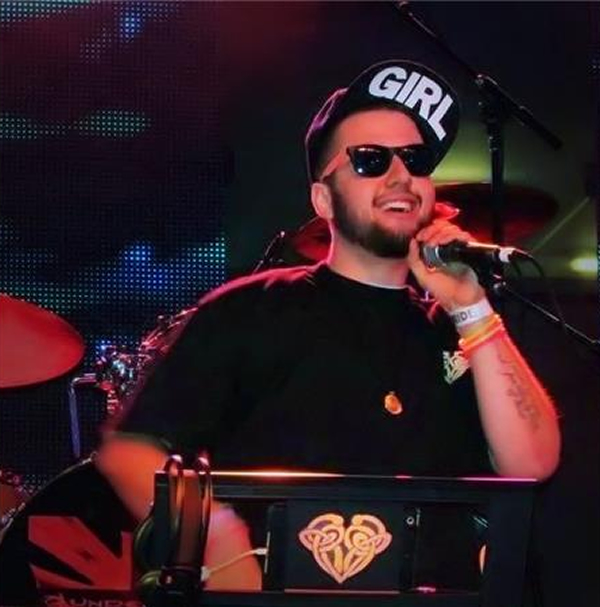
Shane Ivan Nash (Photo courtesy of Nash)
As a transgender activist and talented musician, Nash has consistently shared his story and his music, helping to inspire others. When asked what he loves most about DJing, Nash said, “Your profession requires you to party, dance and create a collected consciousness. The nightlife is the release from life—we’re all on the same beat, in the same moment.”
Of his work with the LGBT community, Nash said, “I’ve helped countless people in the community start their endeavors including Trans Chorus LA and as a board member for LA Pride, I fought for the trans representation.” Learn more at ShaneIvanNash.com.
BEST CHEF: STUART O’KEEFFE
If you haven’t heard of chef Stuart O’Keeffe, then you clearly haven’t been invited to the right A-list Hollywood dinner parties.
A small town Irish hottie, who now lives in West Hollywood, O’Keeffe made a name for himself on the Food Network’s “Private Chefs of Beverly Hills.”
“I was always obsessed with America and always wanted to be on TV,” O’Keeffe told the Los Angeles Blade.
His first gig in the U.S. after culinary school in Ireland was in Napa Valley working at Meadowood Napa Valley. But restaurants didn’t suit him. He says he didn’t like the way people were treated.
“I knew I was destined to do what I wanted without the stress. I thought there must be another way, and I kind of started doing dinner parties in my apartment for friends, and they’d tell people about them. I was also working as an executive assistant, and started getting hired for private parties.
O’Keeffe can’t talk a lot about who he works for, but will mention a few celebs he says have “eaten at his tables” – stars such as Sharon Stone, Jennifer Aniston, Justine Bateman, Harrison Ford, Cindy Crawford, Jane Fonda and Christina Aguilera.
O’Keeffe has been at his job long enough and has become well known enough that he doesn’t suffer fools and although his clients tend to be high-maintenance, he lives to cook for others.
“I want people to be nice. I’m not going to bow down to people. I’m well equipped to do this. I won’t stand for people being rude. I’m fair. I mean, how much do you value yourself really,” he says.
So, why do celebs keep calling him back? He says straight up, it’s the way he looks. “I’m a cute guy from Ireland. A lot of women, I overhear them asking if I’m straight or gay. It can be funny in a really sweet way,” O’Keeffe says laughing.
He’s currently single and dating. He likes to meet guys through friends or at a bar. He says his favorites are the Abbey, Revolver and Chapel. He meets people through friends mostly, and doesn’t do the app thing. He says he’s tried it, but it’s not personal enough and he’s too old school.
O’Keeffe says the “power gays” don’t hire him much.
“They have their set people they use… I think people think that I don’t do this anymore because I do so much TV, or because they think I’m above it. But, if I have time in my schedule, I’ll do it. I don’t really turn down things. I like to keep busy. I’d like to do more things,” O’Keeffe says.
His goal is to have his own TV show on the Food Network. He has another cookbook coming out later this year, and he wants to open a restaurant in the next year or two.
He envisions a show where he can travel around the U.S. — a kind of Irish guy fish out of water. He says he loves rural America, and thinks the people are funny and sweet. They remind him of the small town he grew up in — Nenagh, not far from Limerick.
He says Irish food is different than people think. “We have some of the best meat and fish in the world where we are,” he says.
His signature dishes are chicken cacciatore, short ribs, individual baked Alaska, and a killer flourless cake – “Jennifer Aniston told me my cake was good, so it must be badass.”
For a guy that makes his living off people who don’t cook for themselves, O’Keeffe believes a major problem with Americans in general is that they don’t cook at home enough.
“People need to get back in the kitchen and start cooking. There’s so much joy in that. And it’s healthier,” he says. He adds though that he actually hates to shop. “One of the most annoying thing about cooking is going to the store and shopping for the ingredients. I tell people to go shopping one day, and cook the next day. Cooking can be stressful if you don’t know how to do it.”
When O’Keeffe isn’t cooking for actors and Hollywood executives, you can find him on Mondays at the farmer’s market, on Gardner and Fountain streets, or at his local Whole Foods.
He lists Jar, Rossoblu, and Cecconi’s as his favorite restaurants in LA.
As for his TV aspirations that dream has certainly come true, if you count Food Network, “Stuart’s Kitchen” which aired in Ireland and New Zealand, appearances on Marie, CBS’s “The Talk,” “The Home and Family Show,” and Republic of Telly and Asiana Airlines featured Stuart in its national “Fly with Color” campaign.
EDITORS’ CHOICE, BEST CHEF: SUZANNE TRACT
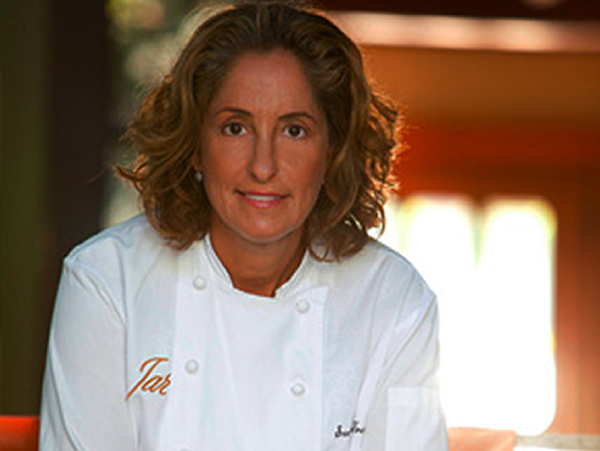
Suzanne Tracht (Photo courtesy Tracht)
Chef and owner of the critically acclaimed Jar Restaurant, Suzanne Tracht has won international praise for her culinary adventures at Jar. Her countless appearances on the “Today” show, Food Network, and Extra, as well as her multiple awards led her to be inducted into the Fine Dining Hall of Fame and participating in Fortune magazine’s Most Powerful Women Summit.
“Relating to people and making them feel warm and welcome isn’t hard and you can do it in many ways, which is why I cook,” Tracht said. “I like feeding people and making them happy.”
JAR
8225 Beverly Blvd.
323-655-6566
BEST BUSINESSPERSON: BRAD LAMM, BREATHE LIFE HEALING CENTER
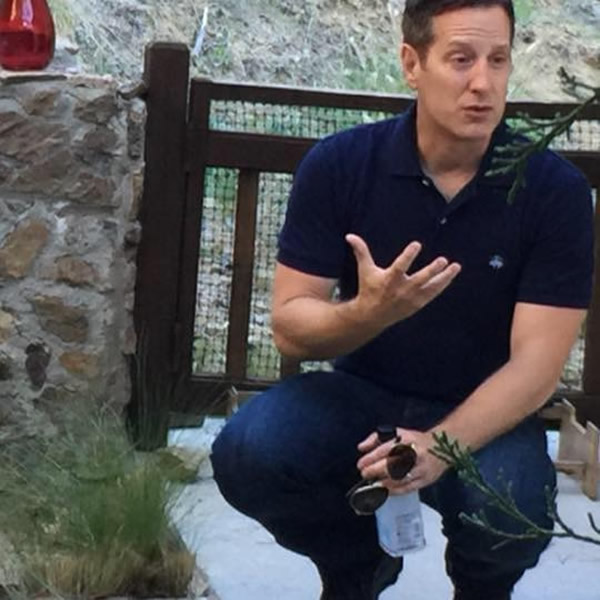
Brad Lamm (Photo courtesy of Lamm)
Fifteen years ago Brad Lamm was a self-proclaimed total mess. He was bulimic. He smoked two packs of cigarettes a day. He was an alcoholic, addicted to meth, and he supplemented all of this by taking Xanax. In 2002, he got clean.
Lamm’s journey to help others grew into an empire with two treatment centers that have helped numerous people in the LGBTQ community get clean and sober.
“I knew I was gay at 5 years old,” he says. “When I took my first drink at 15, I was deliciously soothed. By the time my first partner died in 1989, I was 19 years old and convinced not only was I going to die, but we were all going to die.”
He added, “We were part of this sad infected class with no upside… Gay men in my generation, pre-HIV cocktail, it was more than a death sentence, it was a shame sentence. It was a downward spiral. It was a grizzly and gruesome death. And I’d already been cast out of my family.”
ACT UP became Lamm’s upside. Although he was still getting high at the time, he fell into a clan he calls “purposeful,” working to make progress and trying to save his life.
“I found a place for my rage, but I thought I was going to die from alcohol and drugs, so when I didn’t, it was an amazing ‘ah-ha’ coupled with helping others, and it was all congruous with my trauma survival and being a gay man,” Lamm says.
It was in Lamm’s search for what to do with his life after getting clean that he found doctor Dr. Judith Landau, a South African psychiatrist focused on “invitational intervention,” a trauma-informed approach to helping families help their families.
“Essentially you invite your family to an intervention and the work starts from there. It suited me and it coincided with enormous energy I had around, never thinking I’d stop this litany of things that were killing me,” he says.
Lamm’s entre into the work Landau was doing eventually led to starting an intervention practice himself in New York, 13 years ago, and it really took off thanks to contacts he’d made in his former life as a TV weatherman.
“Some of the same skills I had as a journalist and some of the people I grew up in that industry with were now in TV running shows, and they knew about my remarkable turnaround.
“The ‘Today’ show said come and do a show on recovery, and Oprah said come and do a docu-series on food and that became “Addicted to Food,” an eight-part series produced for her. Then Dr. Oz said come help launch the show. And I did like 30 stories. That was the rocket fuel to this mission of helping my recovery community and their families reduce its suffering,” Lamm says.
Five years ago, Lamm opened a trauma-informed treatment center that would accept health insurance, Breathe Life Healing Center in Los Angeles.
“Meth and alcohol was my struggle, drug and hurt, so to see treatment in my community is powerful,” he says.
He and Scott Sanders, a Tony, Grammy and Emmy winning television, film and theater producer (Sanders produced the musical “The Color Purple” for Broadway), were married and it was the first gay wedding Oprah attended.
He says he sees so much of himself in the Celie character from “The Color Purple.”
“You’re at the end of the rope and you’re so beaten down, and then all of a sudden instead of cutting Mister’s throat, you choose grace and find your way. And part of that is forgiveness. But forgiveness doesn’t mean I need to live up to anyone’s version of who I need to be,” Lamm says.
Lamm says the headline of his life continues to be defined by something famed author, Alice Walker said to him 13 years ago.
“She told me that ‘the power of you is not your story, but that you’re a ‘bodhisattva.’ I was like, what’s that? She told me to go and look it up. It means, the one who goes into the lake of fire to help another out. That’s the beauty of every person to help another. The very wreckage of my past becomes the crown jewel of my ability to help another,” Lamm says.
BREATHE LIFE HEALING CENTER
8730 Sunset Blvd.
800-929-5904
EDITORS’ CHOICE, BEST LGBT BUSINESSPERSON: OLIVER ALPUCHE, REDLINE
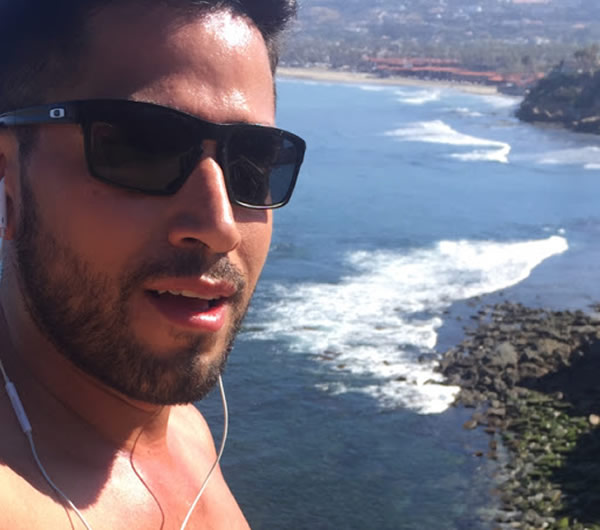
Oliver Alpuche (Photo courtesy of Alpuche)
When asked what inspired the business venture that led to the opening of this premier gay bar in DTLA, Oliver Alpuche said, “I’ve lived downtown for eight years and noticed that the LGBTQ community was growing, but we had nowhere to go and meet each other. Downtown deserves a dedicated queer space 365 days a year.”
That paved the way for the DTLA Proud Festival, which Oliver created. “DLTA Proud is committed to celebrating everyone’s story, to spreading optimism, to growing our community and to expanding our definition of diversity,” he said. “I love Los Angeles because of how diverse it is.”
REDLINE
131 E 6th St.
BEST LAWYER: S. CHRISTOPHER WINTER
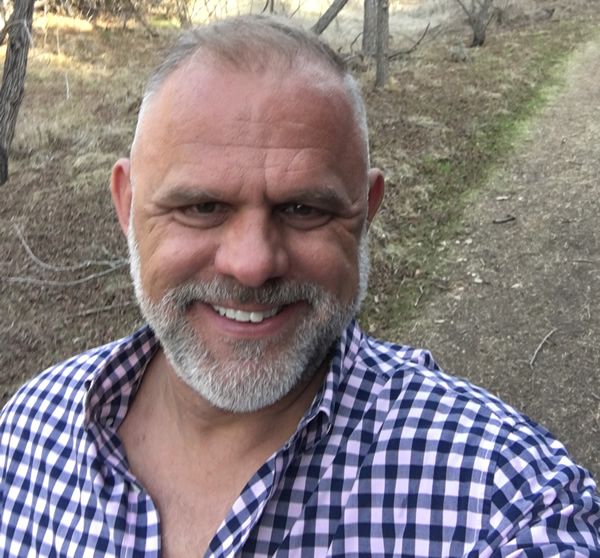
S. Christopher ‘Kit’ Winter (Photo courtesy of Winter)
S. Christopher (“Kit”) Winter didn’t always want to be a lawyer.
“I wasn’t one of those kids who had a clear idea of what I wanted to be when I grew up,” he said. “I could envision myself doing a lot of different things. It all seemed interesting.” That curiosity is reflected in his varied career in New York between graduating from Yale in 1987 and starting law school at UCLA in 1994. “I had a little bit of career ADD after college,” Winter said. “I worked in advertising sales, graphic design, desktop publishing – and I always had a side gig.”
Those side gigs included promoting parties at Limelight, Sound Factory and other New York nightclubs featuring DJs such as Frankie Knuckles, Little Louie Vega, and Junior Vasquez; bartending at various restaurants in the West Village and Chelsea; and working catering jobs for clients including Madonna.
“I think people were surprised when I decided to go to law school,” Winter laughs. “It wasn’t something that you would have necessarily thought was in my future.”
Surprising or not, Winter excelled at law school, graduating UCLA law in 1997 in the top 10 percent of his class and winning numerous academic honors. For more than two decades since then, Winter has been practicing law in Los Angeles, in settings ranging from large national law firms to his current solo practice.
“I don’t believe in fighting for the sake of fighting,” Winter says about his philosophy. “My goal as a lawyer is to help my clients navigate their legal challenges as quickly and affordably as possible.”
Winter’s practice is focused on serving as outside general counsel to small-to-medium sized companies, encouraging his clients to take a proactive approach to avoiding legal problems and crafting effective strategies to address problems. His legal background includes experience in litigation, intellectual property and general business law, and he has authored portions of treatises relating to privacy law and technology transactions.
Winter doesn’t specifically target his practice to the LGBT community, although he says he represents a diverse group of clients.
“I’m a ‘gay lawyer’ because I’m gay and I’m a lawyer,” he jokes. “I’ve been out of the closet since I was a teenager.”
Indeed, Winter has a long history of LGBT activism extending back more than 30 years. As an undergraduate at Yale, he was the co-chair of the Gay & Lesbian Co-op (with the late Sarah Pettit, a founding editor of OUT magazine), and part of a group of students who successfully lobbied the Yale Corporation to include “sexual orientation” in the university’s non-discrimination policy in 1986.
“I was sort of a big gay on campus,” Winter recalls, “writing op-eds in the Yale Daily News, arranging protests, that kind of thing.” Asked whether he contributed to the environment that led the Wall Street Journal to label Yale the “Gay Ivy” in 1987, Winter laughs, “I’d like to think so. I definitely left Yale a gayer place than I found it.”
Winter moved to New York City in 1987, in the middle of the AIDS crisis and shortly after the founding of ACT UP. “It was a terrifying time,” Winter says. “While my straight friends from college were starting their careers or heading to graduate school, gay men were trying to survive an apocalypse.”
Winter became involved in ACT UP and found a home in gay publishing, working first at the New York Native, New York’s gay newspaper, and later serving as the founding advertising director of Outweek magazine.
He later served as the production manager of QW, a gay newsweekly (Troy Masters, Los Angeles Blade publisher was a founder and publisher of QW) for which he also briefly penned the advice column under the moniker “Queer Abby.” “I don’t think we thought much about trademark law back then,” Winter laughs. After working as a freelance desktop publisher at various Conde Nast titles including Mademoiselle, Allure, and Details, Winter decided to pursue the challenge of a career in law, and hasn’t looked back since.
“I love being a lawyer,” Winter says. “Legal issues can be overwhelming to people, and can be fatal to businesses. Helping my clients get through that successfully is very rewarding.”
Winter is married to Patrick Jensen, a Licensed Marriage and Family Therapist. They live in Silver Lake and have two dogs and two cats.
This year will mark Winter’s fourth time riding in AIDS/Lifecycle to raise money for the Los Angeles LGBT Center.
EDITORS’ CHOICE, BEST LAWYER: LAURA W. BRILL, KENDALL BRILL & KELLY LLP
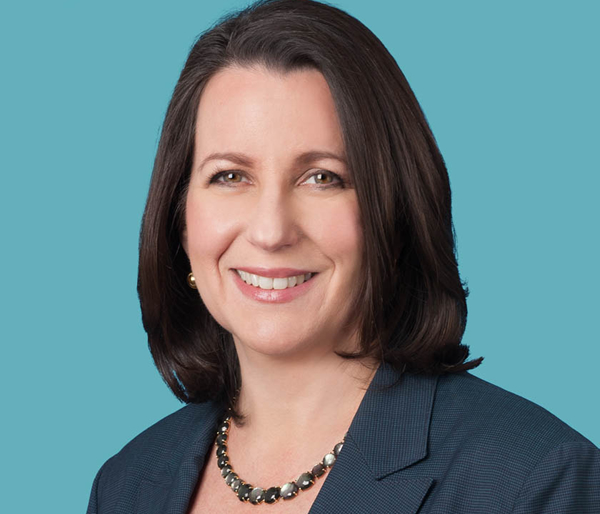
Laura W. Brill (Photo courtesy of Brill)
A lifetime focus on cases that promote equal rights, make Laura Brill a force in the fight against discrimination.
“One of my briefs in the early 1990s argued in the case of Lawrence v. Texas (a challenge to a state anti-sodomy statute) that discrimination based on sexual orientation was a type of sex discrimination and that the statute should be ruled unconstitutional on that basis. That same argument has been made many times over the years…this theory is now gaining recognition by courts and administrative agencies, including most prominently, in cases relating to employment discrimination.”
In the case Colin v. Orange Unified School District, Brill helped pave the way for Gay Straight Alliances. Brill discussed this significant moment: “We got the first preliminary injunction requiring the school to allow the club to meet and use school facilities just like any other club. One of my favorite moments since then has been going to gay Pride events more recently and seeing the huge numbers of wonderful high school students marching with their Gay Straight Alliance banners. I’m so happy to have had a part in helping kids have a safe environment at schools.”
“My New Year’s resolution is to do all I can to increase voter registration rates, especially among young people and especially in the LGBTQ community. Many people don’t know that young people can pre-register to vote when they are 16 or 17. Then when they turn 18 they will be automatically registered to vote,” Brill said. “Most people don’t know about pre-registration, but we need everyone registered so we can make sure government policies reflect our priorities, instead of the opposite.”
Kendall Brill & Kelly LLP
10100 Santa Monica Blvd
310-556-2700
BEST ALLY: MAYOR ERIC GARCETTI
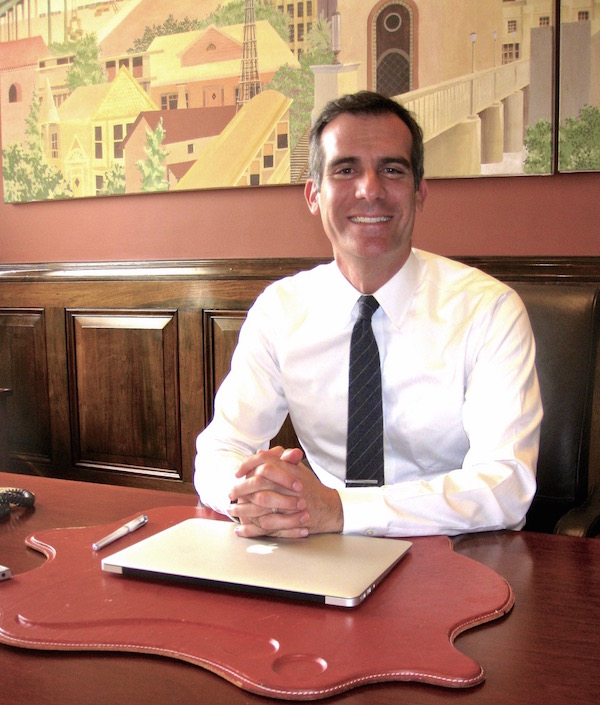
LA Mayor Eric Garcetti in his office (Photo by Karen Ocamb)
EDITORS’ CHOICE, BEST ALLY: LISA VANDERPUMP
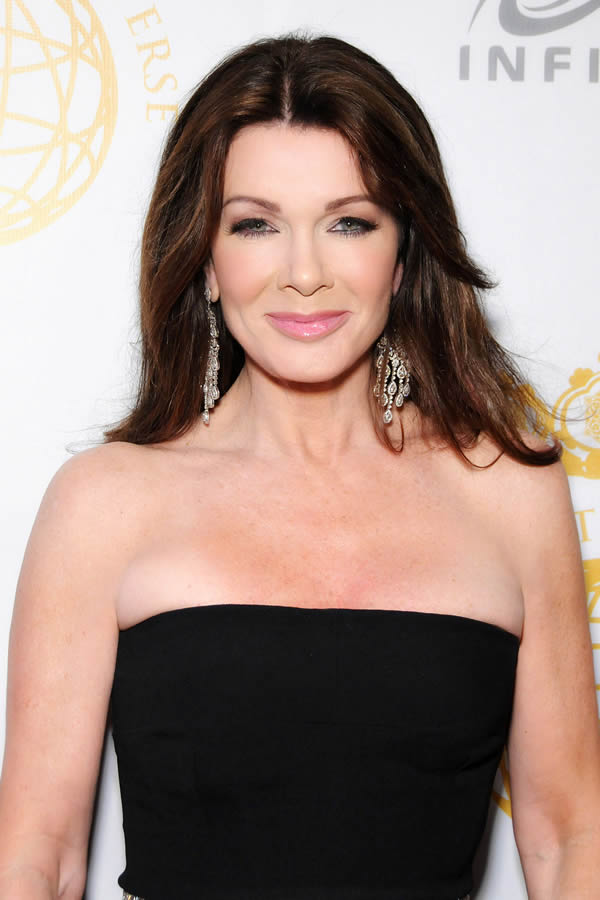
Lisa Vanderpump (Photo by Toglenn; courtesy Wikimedia Commons)
As an entrepreneur, avid activist, author, television personality, and restaurant owner of LA staples such as Pump and SUR, Lisa Vanderpump is an LA icon. She has consistently stood up for the LGBT community, having worked as a spokesperson for GLAAD, led the AIDS Walk Los Angeles, served as grand marshal of 2017 Long Beach Pride, worked with Desert AIDS Project, The Trevor Project, the LA Gay & Lesbian Center and more.
In addition to advocating for the LGBT community, Vanderpump created The Vanderpump Dog Foundation, working to help end animal abuse. She somehow also found time to produce “Vanderpump Rules,” the smash reality TV show. She’s the ultimate philanthropist who really does it all. Vanderpump has a love for all living creatures that shines through in her humanitarian efforts, making her a model ally.
BEST DRAG SHOW: LEGENDARY BINGO AT HAMBURGER MARY’S
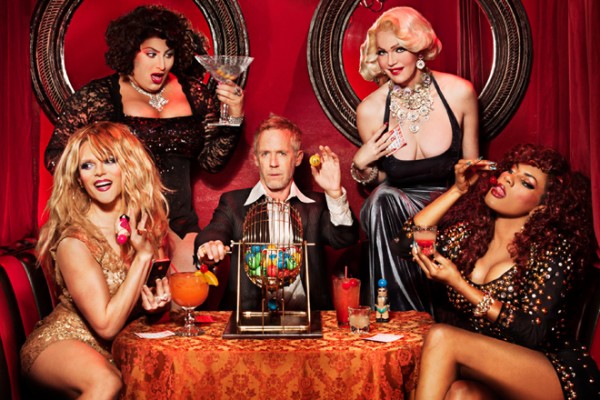
Jeffery Bowman and cast members from Legendary Bingo. (Courtesy Legendary Bingo)
Beautiful drag queens, fantastic food, money, charities…Bingo! Legendary Bingo at Hamburger Mary’s is not just a great drag show, it’s a fantastic and sometimes wild night out. Jeffery Bowman is almost as legendary as Hamburger Mary’s.
HAMBURGER MARY’S
8288 Santa Monica Blvd
323-654-3800
EDITORS’ CHOICE, BEST DRAG SHOW: LYRIC HYPERION, GREEN EGGS AND GLAM
Lyric Hyperion Theatre & Café
2106 Hyperion Ave.
323-928 2299
BEST BAR: THE ABBEY
Where else are you going to see Diana Ross or Elon Musk tear up the dance floor? The Abbey is arguably the best-known gay bar in all of the U.S. and always a fun night out with your besties. It’s a treasured LA icon and so is owner David Cooley.
THE ABBEY
692 N. Robertson Blvd.
310-289 8410
EDITORS’ CHOICE, BEST BAR: REVOLVER
WeHo loves the oversized drinks and darts in the back at this famous video bar.
REVOLVER
8851 Santa Monica Blvd.
310-694 0430
BEST RESTAURANT: SUR RESTAURANT AND LOUNGE
“Real Housewives” star Lisa Vanderpump’s SUR is a great place for people watching, and the upscale food is, well, impressive. It’s definitely a see-and-be-seen scene that can’t be missed.
SUR
606 N. Robertson Blvd.
310-289 2824
EDITORS’ CHOICE, BEST RESTAURANT: Cecconi’s West Hollywood
The Northern Italian cuisine is spectacular, the decor a kind of elegant retro Roman-chic with outdoor seating. True luxe.
CECCONI’S
8764 Melrose Ave.
310-432 2000
BEST GROCERY STORE: TRADER JOE’S
Quite simply, the best place to go shopping for unique, curated food brands.
TRADER JOE’S
7310 Santa Monica Blvd.
323-969-8048
EDITORS’ CHOICE, BEST GROCERY STORE: PAVILIONS
Extensive selections of the highest-quality foods. And, at least in WeHo, it’s where the boys are.
PAVILIONS
8969 Santa Monica Blvd.
310-595-1730
BEST REAL ESTATE AGENCY: THE COLLECTIVE REALTY
Experienced real estate agents who negotiate well for their clients. One reader said, “The Collective is the concierge service of boutique realty. And Andy Vulin is the best real estate investment teacher I ever met.”
EDITORS’ CHOICE, BEST REAL ESTATE AGENCY: BERKSHIRE HATHAWAY
Find the most luxurious West Hollywood or Beverly Hills home of your dreams and call Berkshire Hathaway, because no one can close it faster or more fairly. Readers praised their attentiveness to detail.
BERKSHIRE HATHAWAY
131 S. Rodeo Dr.
310-844-6434
BEST STYLISTS: SHORTY’S BARBER SHOP
Whatever level of service you require for your coif, Shorty’s is the place to go. It’s the very best place in West Hollywood for a drop in fade. People travel from all over Los Angeles to the unmistakable storefront on Fairfax.
SHORTY’S
755 N. Fairfax Ave.
323-297-0554
EDITORS’ CHOICE, BEST STYLIST: MARCO PELUSI
Celebrity hairstylist Marco Pelusi has the best tips for looking great. “Ask your stylist to do a gloss or a shine treatment when you’re next at the salon,” he recommended. “Your hair can often dry out and look dull, lifeless, and frizzy during winter months; the added shine treatment will boost the condition of your hair and make it look healthy.”
MARCO PELUSI
636 N. Robertson Blvd.
310-967-0999
BEST CAR DEALERSHIP: BEVERLY HILLS BMW
One reader commented, “At Beverly Hills BMW, I walked through and decided what I wanted and with no pressure at all I left with the $90,000 ride of my dreams. No hassles, no pressure. Just great service and a brilliant ride.”
BEVERLY HILLS BMW
5070 Wilshire Blvd.
877-794-4678
EDITORS’ CHOICE, BEST CAR DEALERSHIP: HONDA OF HOLLYWOOD
Honda of Hollywood has one of the best full-service shops of any dealership in Los Angeles. Our favorites are the 2018 CRVs and HRV. Great quality SUVs at a realistic price.
HONDA OF HOLLYWOOD
6511 Santa Monica Blvd.
323-466-3247
BEST MEDICAL PROVIDER: CEDARS SINAI URGENT CARE
World-class urgent care from one of the world’s leading medical institutions.
EDITORS’ CHOICE, BEST MEDICAL PROVIDER: SOUTHERN CALIFORNIA MEN’S MEDICAL GROUP
Doctors you can talk to and advice that’s easy to take because they are just like you. Comprehensive, fully loaded and state of the art.
SOUTHERN CALIFORNIA MEN’S MEDICAL GROUP
9201 Sunset Blvd.
310-550-1010
BEST FITNESS FACILITY: 24 HOUR FITNESS
One of the busiest places in WeHo, 24 Hour Fitness is as much a family for some as it is a gym.
24 HOUR FITNESS
8612 Santa Monica Blvd.
310-652-7440
EDITORS’ CHOICE, BEST FITNESS: EQUINOX FITNESS
A little bit of luxury goes a long way during a hard workout. Outstanding, modern and clean facilities are what make Equinox worthy of Editors’ Choice.
EQUINOX FITNESS
8590 Sunset Blvd.
310-289-1900
BEST MARIJUANA DISPENSARY: MEDMEN
Since Jan. 1, MedMen has experienced lines down the block and its fans are true believers in the almost Apple Store experience of boutique weed products of every kind. Founder Andrew Modin, almost overnight, has become a business sensation in West Hollywood and is now ramping up to take it national.
MEDMEN
8208 Santa Monica Blvd.
323-848-7981
EDITORS’ CHOICE, BEST DISPENSARY: ZEN HEALING WEST HOLLYWOOD
Some say it has one of the highest-grade selections of any store in Los Angeles. Its edibles and medicinal choices are outstanding.
ZEN HEALING
8464 Santa Monica Blvd.
323-656-6666
BEST HOTEL: WALDORF-ASTORIA
One of the world’s leading hotel names is now at home along Santa Monica and Wilshire Boulevard in Beverly Hills. Unprecedented luxury is just the tip of the iceberg of the Waldorf experience. After watching it soar skyward during construction, you know you want to spend the weekend there. Staycation!
WALDORF-ASTORIA
9850 Wilshire Blvd.
310-860-6666
EDITORS’ CHOICE, BEST HOTEL: JEREMY HOTEL
Soon to experience a name change — think One Hotel — The Jeremy, as everyone now calls it, is an astounding architectural gem and gorgeous hotel overlooking Rainbow City. It’s not only a great place to stay, it’s also a destination.
JEREMY HOTEL
8490 Sunset Blvd.
310-424-1600
BEST HOUSE OF WORSHIP: FOUNDERS METROPOLITAN COMMUNITY CHURCH
The house that MCC founder Troy Perry built is a rollicking, down home gospel of faith and a beacon in the fight and one of the most consequential cornerstone establishments of LGBT history in LA.
FOUNDERS
4607 Prospect Ave.
323-669-3434
EDITORS’ CHOICE, BEST HOUSE OF WORSHIP: KOL AMI
One of the most significant Reform synagogues in America is also one of the most innovative. A powerhouse of Jewish tradition and thought, Rabbi Denise Eger is devoted to community and social justice.
KOL AMI
1200 N. La Brea Ave.
323-606-0996
BEST LGBT SOCIAL GROUP: IMPULSE GROUP LA
Impulse Group is an international group that advocates change toward healthier sexual lifestyles among gay men in 18 cities around the world, based in Los Angeles. Founder Jose Ramos felt stronger community bonds and family building among peers can reduce HIV rates and save lives. Turns out he was right.
EDITORS’ CHOICE: BEST LGBT SOCIAL GROUP: VARSITY GAY LEAGUE
California’s largest LGBT recreational sports league is celebrating 10 gay years! A robust and well-organized calendar of Kickball, Dodgeball, Bowling, Tennis, Soccer and Volleyball. Who says gays don’t do sports? Will Hackner and Andrew Miller want to know.
BEST MUSEUM: LOS ANGELES COUNTY MUSEUM OF ART
LACMA is a world-class museum and with its expansion, including an incorporation of Hollywood movie and Oscar history, it’s unrivaled. Many outstanding collections and community events, like outdoor films, make it a treasured institution.
LACMA
5905 Wilshire Blvd.
323-857-6000
EDITORS’ CHOICE, BEST MUSEUM: THE BROAD
One of the most important modern museums in the western United States is also one of the most iconic landmarks in DTLA. Eli Broad’s massively important contemporary art collection almost wound up in a building that would have been where the new Waldorf is today.
THE BROAD
221 S. Grand Ave.
213-232-6200
BEST NON-PROFIT: AIDS HEALTHCARE FOUNDATION
AHF provides services to more than 600,000 HIV+ individuals in 15 U.S. states and 36 countries worldwide and is the largest AIDS service organization in the world. Michael Weinstein founded the agency as a hospice when no hospital would care for AIDS patients and since then has grown it into a billion-dollar non-profit.
AIDS HEALTHCARE FOUNDATION
6255 W. Sunset Blvd.
323-860-5200
EDITORS’ CHOICE, BEST NON-PROFIT: LOS ANGELES LESBIAN & GAY CENTER
Founded by Morris Kight in 1969, LA’s LGBT Center is now the world’s largest LGBT social service agency and community center and is in the middle of an expansion that will revolutionize its reach. Lori Jean, its CEO, has become one of the most important LGBT non-profit leaders in the U.S.
LGBT CENTER
1625 N. Schrader Blvd.
323-993-7400
BEST VET: LAUREL PET HOSPITAL
A truly empathic provider of outstanding medical services for generations of LGBT community members in West Hollywood.
LAUREL PET HOSPITAL
7970 Santa Monica Blvd.
323-654-7060
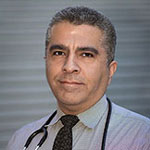
Dr. Mark Nunez
EDITORS’ CHOICE, BEST VET: Dr. MARK NUNEZ, formerly of VETERINARY CARE CENTER, now Medical Director of VCA Miller-Robertson Animal Hospital.
Dr. Mark Nunez was previously Veterinary Care Center’s go-to doctor, known for going the extra mile to save your pet. Dr. Nunez recently accepted a new position as Medical Director of VCA Miller-Robertson Animal Hospital
VCA Miller-Robertson Animal Hospital
8807 Melrose Ave, Los Angeles, CA 90069
310-657-7050.
BEST LA ATTRACTION: GRIFFITH OBSERVATORY
The go-to place for all family visits and the south-facing slope of Mount Hollywood offers views that just can’t be beat.
GRIFFITH OBSERVATORY
2800 E. Observatory Rd.
213-473-0800
EDITORS’ CHOICE, BEST LA ATTRACTION: HOLLYWOOD BOWL
The iconic outdoor theater celebrates everything about Los Angeles and features some of the greatest names in music, under the stars.
HOLLYWOOD BOWL
2301 N. Highland Ave.
323-850-2000
BEST RED CARPET EVENT: HRC LA DINNER
The Human Rights Campaign brings out the star power each year in Los Angeles and is famous for an exuberant red carpet experience. On March 10, 2018 you have your next chance to take a walk.
EDITORS’ CHOICE, BEST RED CARPET: OUTFEST
The world’s most important LGBT film festival is also becoming one of LA’s most anticipated events.
(Mary Jo De Silva contributed to this article)
a&e features
Amy Madigan finds herself on the cusp of Oscar glory. Can she overcome the historic bias against horror performances?
How history and stats make this year’s supporting actress race the toughest to call
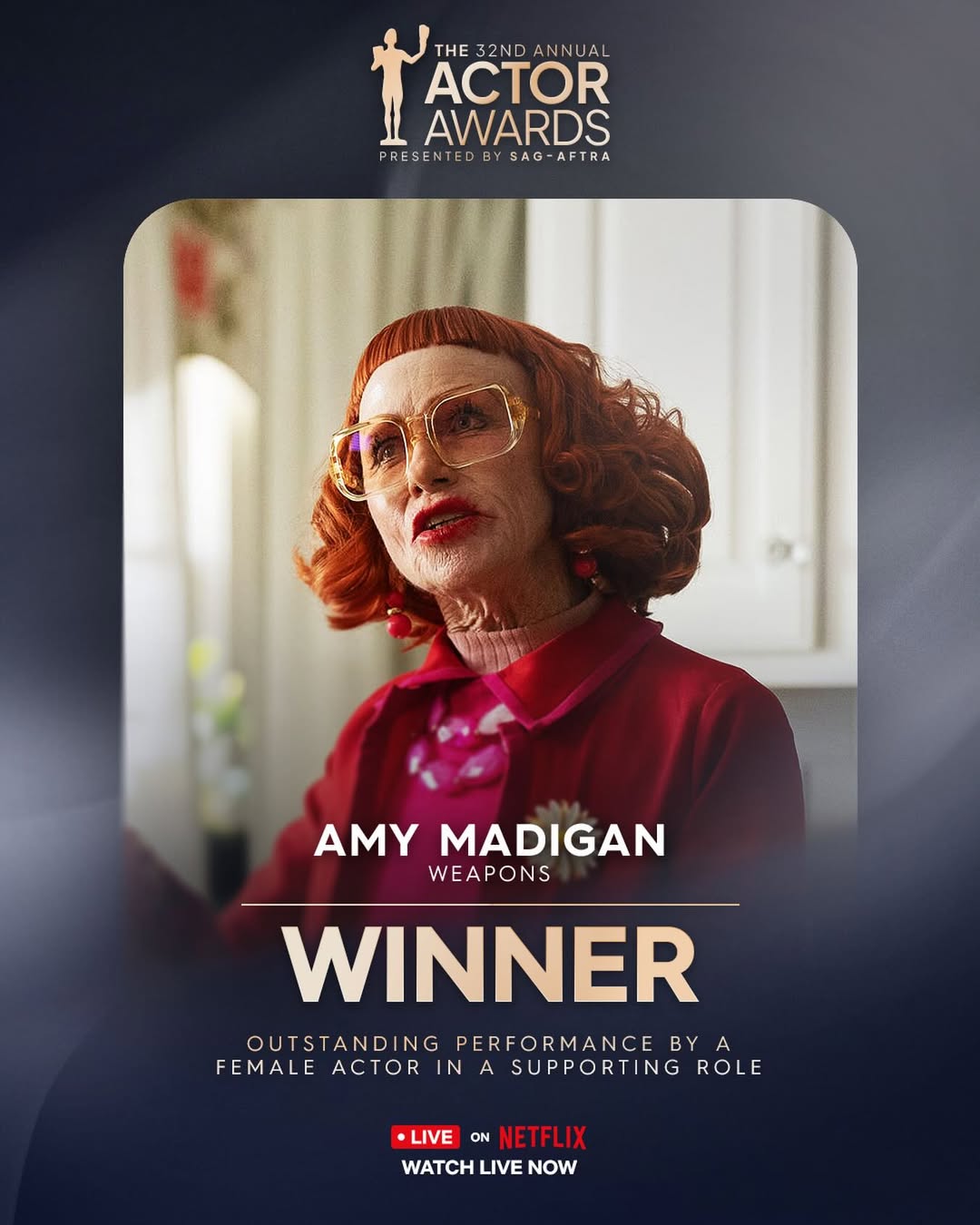
One of the biggest headlines out of last night’s Actor Awards (formerly known as the SAG Awards) was Amy Madigan winning best supporting actress for her work in Zach Cregger’s hit horror comedy Weapons.
As she stepped on stage during the last major televised ceremony of the season — a crucial platform as Oscar voting continues through Thursday, March 5 — Madigan charmed her fellow actors and peers, shouting out fellow Weapons actors Julia Garner, Alden Ehrenreich, and Austin Abrams and remarking on how “actors love other actors.” In a moment where she would’ve been completely justified to simply relish in personal victory after working at her craft for 45 years, Madigan turned the spotlight on the collaborators who made her remarkable transformation as Aunt Gladys possible.
As she finds herself on the cusp of Oscar glory, Madigan is also on the cusp of breaking through the Academy of Motion Pictures Arts and Sciences’ historic bias against horror performances (remember Toni Collette in Hereditary and Florence Pugh in Midsommar?) But it’s that same bias that could keep the Field of Dreams actor from going all the way.
Last year, best actress frontrunner and The Substance star Demi Moore lost the Oscar to Mikey Madison in the best picture winner, Anora. Moore won major awards at the Critics Choice, Golden Globes, and Actor Awards, while Madison won at the BAFTAs and Spirit Awards. The Substance certainly tested Oscar voters more with its ultra-shocking body horror, but Madigan’s trajectory with Weapons hasn’t been too far off from Moore’s — she’s a veteran actor finally getting her dues for an out-there horror performance in an even more out-there film. You could argue Madigan has the most identifiable career narrative of the season, and she gave one hell of a memorable performance that instantly went viral.
She’s been here before; in a fitting full-circle moment, Madigan received her first and, to date, only other Oscar nomination exactly 40 years ago for 1985’s Twice in a Lifetime, an indie drama starring Gene Hackman, Ellen Burstyn, and Ann-Margret (Madigan was the sole nominee for that film). The Oscar-winning group that Madigan hopes to join come March 15 is comprised of Jodie Foster and Anthony Hopkins for The Silence of the Lambs, Kathy Bates for Misery, Fredric March for Dr. Jekyll and Mr. Hyde, and Ruth Gordon for Rosemary’s Baby. A small group, but mighty company for the lucky actor who joins it next.
Madigan’s trajectory has already been compared to Gordon and Rosemary’s Baby, and rightly so — Gordon won the supporting actress Oscar in 1969 on her second acting nomination, while box office hit Rosemary’s Baby was only nominated for one other award (best adapted screenplay). Weapons was an undeniable summer sleeper hit, grossing $269 million worldwide and earning a coveted nomination from the Producers Guild of America, yet Madigan was the only part of the film to be Oscar-nominated. Her two main competitors, which include BAFTA winner Wunmi Mosaku for Sinners and Golden Globe winner Teyana Taylor for One Battle After Another, have the benefit of being in best picture frontrunners with 16 and 13 nominations apiece. Those films also have top-of-the-line visibility from distributor Warner Bros. Pictures.
With the uncertain state of the supporting actress race so far, Madigan has history going both for and against her; the past six Actor Award winners for supporting actress, most recently Zoe Saldaña for Emilia Pérez and Da’Vine Joy Randolph for The Holdovers, all went on to win the Oscar. But those six actors were in films with multiple Oscar nominations, including best picture, and four of the six swept all the major precursors. Notably, the last time the Actor Awards mismatched with the Oscar supporting actress winner was in 2019, when Emily Blunt won for A Quiet Place (she wasn’t even nominated for the Oscar!)
As the sole rep of her film in a fractured category, Madigan has more odds stacked against her. One could also argue, though, that Madigan being the sole nominee of her film means all the campaigning has been able to strategically focus on getting her the win. Whether she prevails at the Oscars or not, she’s certainly had a blast on the campaign trail, enjoying the likes of Oscar winner Sally Field and Emmy winner Hannah Einbinder hosting Weapons screenings, tastemaker events, and Q&As over the past several months.
Madigan’s performance as Aunt Gladys has resonated with horror fans for skillfully playing the character’s terrifying turn from chatty neighbor to demonic hair-splitting killer, while the LGBTQ+ community has embraced her entire look and ethos. Aunt Gladys costumes could, predictably, be seen everywhere on Halloween, and she’s become an unstoppable inspiration for drag artists and performers. In a recent interview with Turner Classic Movies, Madigan even noted Bette Davis and What Ever Happened to Baby Jane? as a major inspiration for Aunt Gladys’ makeup and look.
Madigan told Rough Draft Atlanta in November, “I think in that realm – as someone who was bullied a lot as a kid – whenever you see characters like Gladys being proudly themselves and loud and open, there is something that resonates [with] the queer community and everybody, because that is what people want – the courage to be themselves.”
Madigan was in good company last night, with Sinners aiming to continue making history for horror cinema after its record-breaking 16 Oscar nominations. At the Actor Awards, Michael B. Jordan won best actor and the film’s ensemble took the top award, while Mosaku won best supporting actress at the BAFTAs. Jacob Elordi, who won best supporting actor at the Critics Choice Awards for Frankenstein, is nominated at the Oscars as well.
Not all these actors are odds-on favorites to win their respective categories, but 2025 horror performances have already broken through with Academy voters in the nomination stage. It wasn’t too long ago when millions of people watched Weapons in a crowded theater and discovered Madigan’s transformative talent for the first time, with some immediately writing her off from the Oscar race based on historical precedent. It’s only fitting that Aunt Gladys and the chameleon actor who brought her to life continue to prove us wrong.
a&e features
Taylor Tookes wants you to be your own beauty standard
This queer model wants her fans to be larger than life — even if they’re only 5’1”
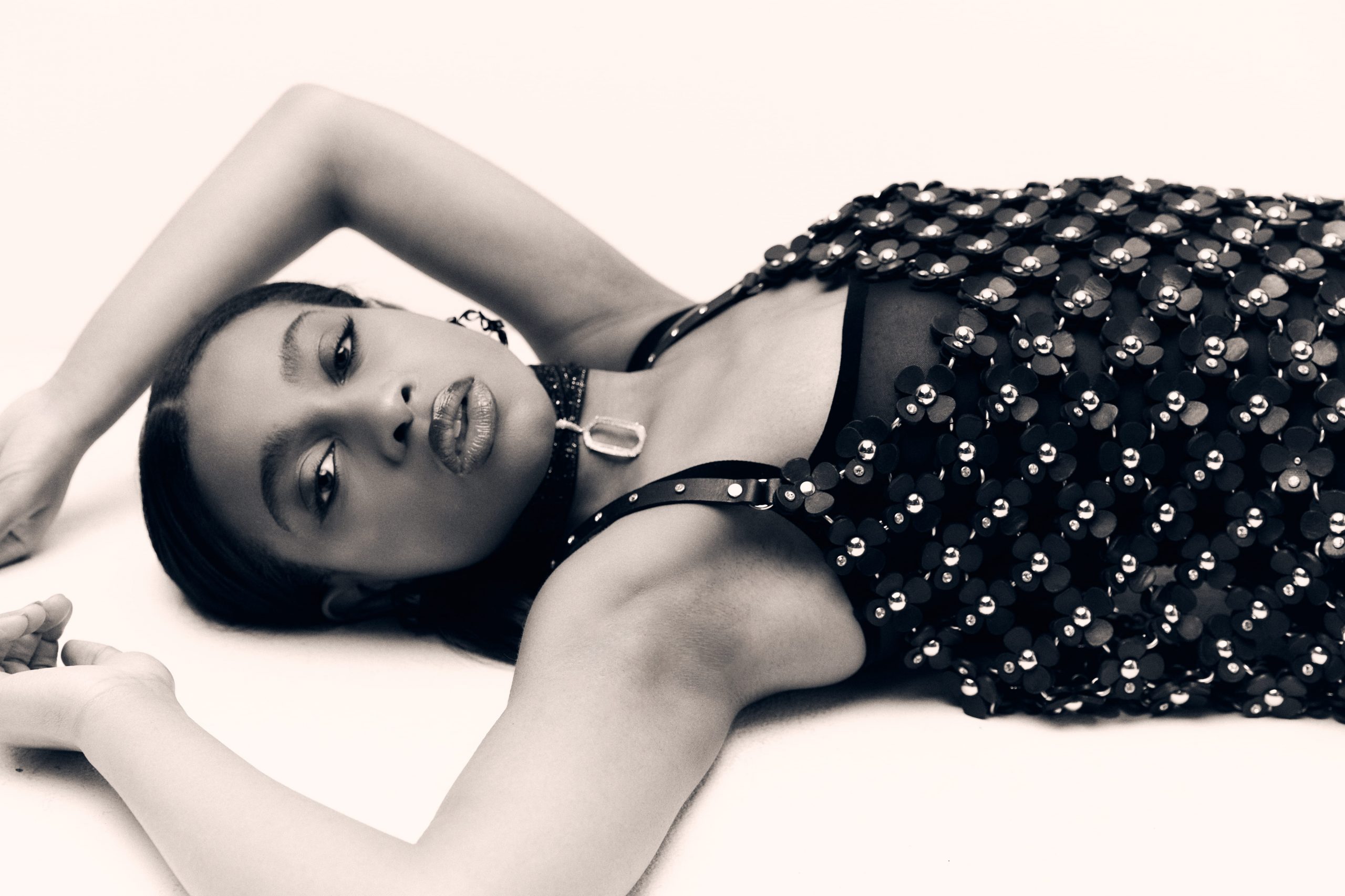
There’s a certain truth when it comes to the fashion industry: it’s absolutely brutal.
It’s undeniable how much fashion drives culture; from the clothes folks wear to the influencers taking over social media, this endlessly complex business determines so much of your average person’s day-to-day life. With this being such a gargantuan industry, it’s no wonder why it’s so difficult to be a successful model — especially if you’re marginalized! While recent years have seen a welcome increase in LGBTQ+ models, models of color, and models who don’t fall into your typical beauty standards, it’s still immensely difficult for someone who’s ‘different’ to make it in fashion today.
Which is what makes Taylor Tookes so unique.
Standing at a proud 5’1”, this queer woman of color has spent the past few years dominating fashion in a way most models could only dream of. From making history as the first “short” model in New York Fashion Week to recently being named Glamour Bulgaria’s Woman of the Year, her accolades haven’t stopped rolling in since she began modeling a decade ago. But despite this, she detailed how much rejection she still faces today, with so many people (in and outside of the industry) using her identities to discredit her many years of hard work. It’s a constant negativity that can easily get someone down, but for Tookes, she just has one thing to say: “I really don’t care.”
“What really made me want to pursue [modeling] as a career was rejection, and hearing the word ‘no’ a lot,” Taylor explained. “I thought it was the dumbest thing ever!” She detailed the countless rejection letters she received early in her career, with a majority of them blaming their dismissal on the model’s height. “There’s a side of [this] industry that embraces all of my identities, but there’s also that side that’s like, ‘You shouldn’t be here. Why are you here? You’re too short. You’re too this. You’re too that!’” These questions are ones that Taylor has heard from the first few days of her career up until now, with many still questioning her role even after appearing in numerous legendary magazines. But Tookes doesn’t let this negativity get her down! She is constantly optimistic and embraces a positive outlook…one that anyone who’s been online has seen before.
Since childhood, most people who’ve consumed any aspect of American media have encountered the mantra of ‘’You’re beautiful just the way you are.” It’s an uplifting message that can be indescribably hard to follow; it’s easy to say “love yourself no matter what” when you aren’t bombarded by oppressive beauty standards or the stress of a 9-5 job. Even more, for queer people, it can be so difficult to focus on how amazing you think you are when there are so many others trying to convince you otherwise. Because of this, our communities have been at the forefront of calling out ‘toxic positivity’ and its unhealthy effects on influencers who haven’t known strife, chiding others for not being as effortlessly confident as they are.
With Taylor’s nonstop ambition and optimism, it can be easy for people to dismiss her mentality as this distinctly cheery brand of unrealistic. But anyone who actually speaks with the model understands that this confidence didn’t come easy — it’s one she’s fought to have in spite of the countless people who told her she shouldn’t.
Throughout the conversation, Taylor spoke about the many years when any one of her identities excluded her from the spaces that taller, straight models could access easily. Yet she described these moments not with sadness, but with verve. “It doesn’t really affect me in any negative way. I would say it falls under the ballpark of rejection for me, which just pushes me to keep going.” She is not someone who had this career handed to her. Taylor has proven herself as a hard-working person who faces adversity every day online, but recognizes that it all comes from people who don’t matter because they aren’t her.
“You kind of just have to remove your perception of yourself from other people’s perception of you…because really, the only perception that matters is your own. What you think of you is the only [opinion] that matters.” It’s a mantra that would sound hollow from a person who hadn’t faced hardship before, but that gains power coming from Taylor. But she knows that this hard-fought mentality isn’t easy for everyone to, which is why she fights for her communities both on and off the runway. “Representation is really important [to me]….to see someone like yourself in the industry out there like you. So you can have the mentality of, ‘Hey, if they can do it, I can do it too.’” Along with breaking barriers, recent years have seen Tookes begin advocating for fresh faces in not only fashion, but media as a whole. She and fellow model Victoria Pousada recently began The Starter’s Block, an organization dedicated to amplifying indie projects and helping independent talent like they once were to find their place in the film industry.
As the conversation came to an end, Taylor Tookes emphasized that she may be one of the first short, queer women of color to conquer fashion — but she won’t be the last. She urged anyone with her identities to join her on the covers of magazines, to be brave and try while remembering that rejection is just fuel in the fight to follow your dream. And for those who may not want to walk a runway but just want to feel beautiful in a world constantly telling them they’re not, Taylor advises them to say what she tells herself whenever she feels down.
“I just remind myself: Don’t listen to them. You’re that girl…I remind myself of who I am, why I’m here, and what my mission is. [I just need] my own validation — and no one else’s. It all depends on me.”
a&e features
Revry Co-Founder Damian Pelliccione on why we need ‘King of Drag’
The co-creator of this hit series speaks about its impact — and what fans can expect from season two!
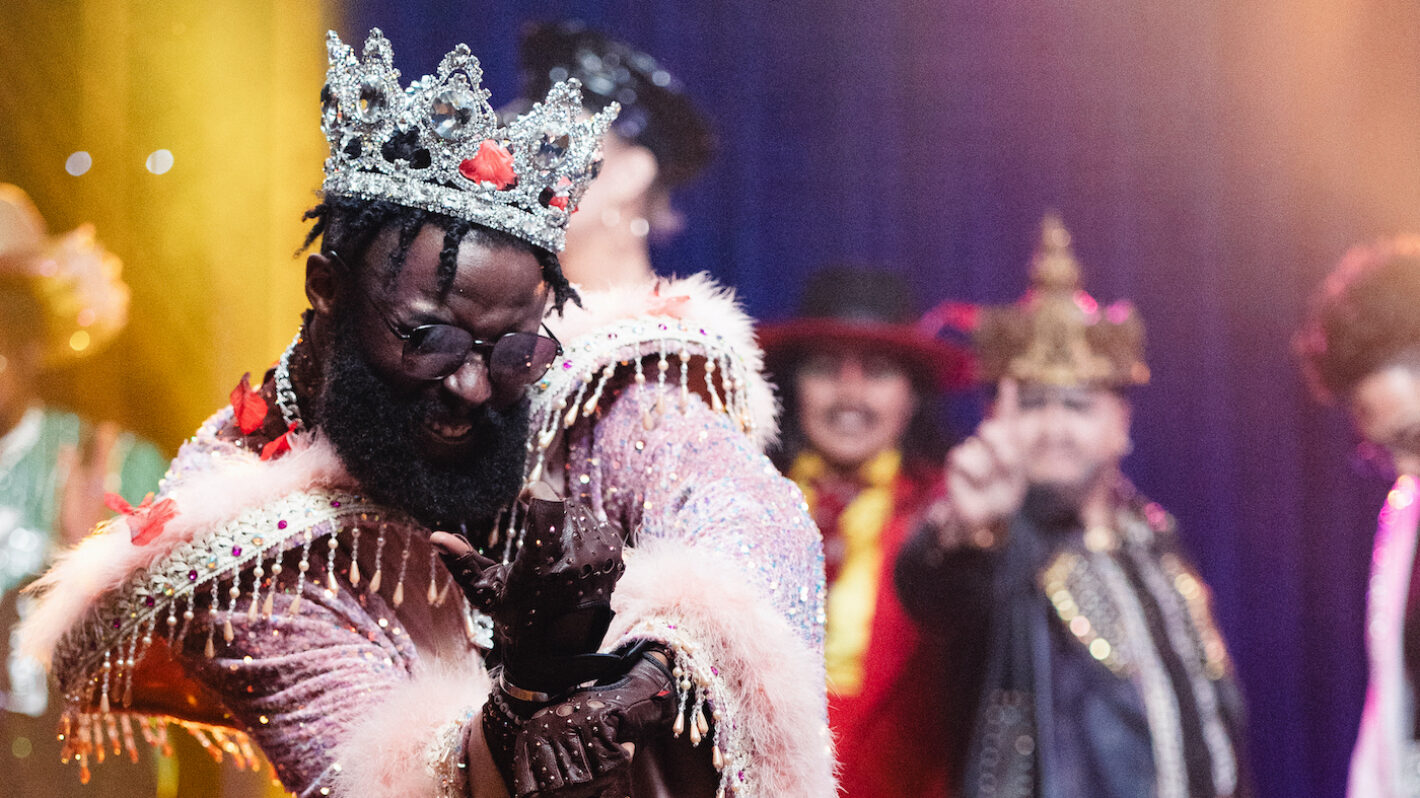
King of Drag, the only drag king competition show on TV, activated the LGBTQ+ community with a big bang, and it’s clear why. Despite an increase in drag-centric media, this was the first series deliberately focusing on spotlighting these kinds of artists. Even a year after its premiere, fans are still raving about the show, with season one delivering a level of kingly charisma nobody could’ve expected — making it all the more exciting when it was announced that King of Drag was officially casting for season two!
As co-founder of Revry — the LGBTQ+ streaming service that hosts King of Drag — and co-creator of this hit competition show, Damian Pelliccione understands the power that media has on its audiences. It’s why they work every day to create LGBTQ+ content anyone can enjoy, and it’s why they fought to get King of Drag televised and ensure it was a space where kings could finally be celebrated. Sitting down with the Los Angeles Blade to discuss the series’ season two announcement and what it’s meant to be a part of such a trailblazing franchise, they started this interview by making one thing very clear: “We’ve always been fully invested in casting and promoting Drag Kings on our shows.”
The co-founder spoke about how representing marginalized identities has always been an integral part of Revry’s mission. “We’ve always been very inclusive in our casting to make sure that we [work with] kings just as much as we work with Queens.” It’s a sentiment that, unfortunately, most other drag-centric series don’t share. RuPaul’s Drag Race, especially, has been criticized for refusing to cast anyone who wouldn’t fall under the umbrella of ‘queen.’ And while subversive programs like The Boulet Brothers’ Dragula do allow drag kings to compete, the show typically only allows one or two each season, meaning that there’s only a short time to discuss the boundless intricacies that exist in this art form.
This means that while drag king representation exists, it’s only been a trickle amidst the wave of awareness that drag queens have received in recent years. This phenomenon never sat right with Damian and their Revry team — so they decided to do something about it.
After years of searching for sponsors to get the show made, King of Drag officially premiered in June 2025 to widespread acclaim. Fans were instantly taken by the bombastic competition; while its format is similar to many other series’, the hilarious judging panel (led by the amazing Murray Hill) and jaw-dropping challenges were endlessly zany while also perfect avenues for contestants to show their immense talent. Almost growing emotional, Pelliccione recounted the widespread support the series received after its first few episodes, saying, “[Viewers] come forward to say, ‘Thank you for creating something that is not just about fighting or cattiness.’ It’s an elimination show, but you could see the authenticity in the heart of these kings…you could see their struggles, and [what it took] to create their art.” They fondly described the love this project hasn’t stopped receiving since it first came out — but they also detailed the rampant hatred that has come along with it.
It shouldn’t be forgotten that King of Drag was produced and aired early into the current presidential term, with the early months of 2025 seeing a level of anti-trans and homophobic rhetoric filling the U.S. in a way many viewers had never seen before. Damian recalled how, in the face of this hatred, their team understood that audiences needed King of Drag now more than ever. “It’s somewhat an act of defiance having a show like King of Drag — and having a network like Revry [altogether],” they said, filled with pride. “You can’t stop progress, and we’ve already come so far as a society (at least, I hope we have), so going back does not seem realistic. And I think that we’re seeing resistance now to our sitting government, and hopefully this carries into our midterm elections!”
A resistance that was buoyed by King of Drag, with each episode introducing viewers to nonstop drag excellence and thoughtful conversations on what it means to be a queer artist today. This, combined with the wild challenges — ranging from queer quiz shows to boy band performances — turned the initial installment into a raucously prideful experience for everyone watching. For almost a year now, fans have applauded all that the show was able to accomplish, and Damian assures these viewers that there’s even more coming in season two.
“Some of the biggest things we’re really excited about in this season are [not only] a few returning challenges, but we are [also] really bringing on a whole new level of celebrity guest judges,” raved the excited co-creator. “We’re really tailoring our [judges] so that they could be a kind of mentor or advisor. [Helping] build something that the king can use for their future career!” It was this point especially that Damian emphasized as the heart of King of Drag, recognizing that while having your time in the spotlight is amazing, bills still need to be paid when the cameras are shut off. “I want kings who come off our show booked and blessed. What else can we do as a network just to help support those careers?’”
With the interview coming to an end, Damian was asked the question that thousands of drag kings are currently thinking: how can I get cast? Typically, producers answer this style of inquiry with vague advice about uniqueness and skill — but not Damian. Still wanting only the best for their contestants, they plainly stated, “My one word of advice: this is not a side hustle.”
“The purpose of being on the show is to create a career for you…We want people who are really serious about the art form and have their own specific take on what it is to be a drag king. We want your authenticity, and we want to see that this is a career path for you. We [want to know] that this is something that you’re ready to take to the next level.”
An ambitious yet thoroughly uplifting goal for the many kings currently getting their applications together. And with that advice, the creator made one thing very clear: King of Drag exists not only to spotlight drag kings, but to bring them and their art form to the forefront of queer entertainment. It’s a revolutionary undertaking that viewers can watch unfold in each scene, and if a drag king feels ready to join in and become a part of this mission, Damian invites them to gather up their best drag and apply for season two today.
King of Drag season 1 is streaming on Revry
a&e features
‘Pee-wee as Himself’ and ‘Lurker’ directors on how queer audiences have reacted to their Spirit Award-winning films
“It’s been revelatory for young people,” Matt Wolf said of telling Paul Reubens’ coming out story

This year’s Film Independent Spirit Awards winners told wide-ranging stories of everything from Paul Reubens’ posthumous coming out in Pee-wee as Himself to a fictional homoerotic relationship that forms between an artist and his biggest fan in Lurker.
With such a diverse group of winners, these filmmakers reflected on how queer people and young audiences have responded to their work.
“I’ve talked to people whose kids have seen the film, and young kids don’t understand what the closet is,” Pee-wee as Himself director Matt Wolf told The Blade backstage. “As a younger, gay filmmaker, I felt like I could help him do that on his own terms. It was a big deal for Paul. It’s interesting to hear from people’s kids who don’t understand the struggle.”
Wolf continued: “It’s been revelatory for young people in that sense, but also I’m hearing from people that their kids are now watching Pee-wee’s Playhouse, and that they love it. And you never know, does this thing look old? Does it feel outdated? [His films are] so otherworldly, and I don’t think young people register it as being from any time.”
Lurker director Alex Russell (who previously wrote on Beef and The Bear) nabbed awards for best first screenplay and best first feature, and Théodore Pellerin and Archie Madekwe were nominated for their performances. Russell’s win is a testament to Film Independent’s legacy of embracing new generations of filmmakers and storytellers.
While accepting the award for best first screenplay, Russell recognized the creatives who took a chance on him, saying: “I want to thank everyone who was willing to look stupid and put even just a sliver of themselves on the line to legitimize all these new filmmakers here tonight, who, without you, would still be aspiring to make their first movie.”
Backstage, The Blade asked the breakthrough filmmaker about how queer people have responded to the film’s thorny take on male relationships.
“I don’t know if the queer community has reacted to me personally. There’s an interesting discussion in what Matthew and Olivier’s relationship is all about … and where they stand on the spectrum,” Russell said. “I want people to think about that, I want people to think about the ambiguity of that. That being said, if the queer community wants to talk to me about it, I’m here!”
Pee-wee as Himself is available to stream on HBO Max, while Lurker is on MUBI.
a&e features
Liveplay series ‘Gladlands’ finds hope in the unlikeliest of places
The cast of ‘Dimension 20’s’ latest season discusses bringing chaos and community to their many loyal fans.
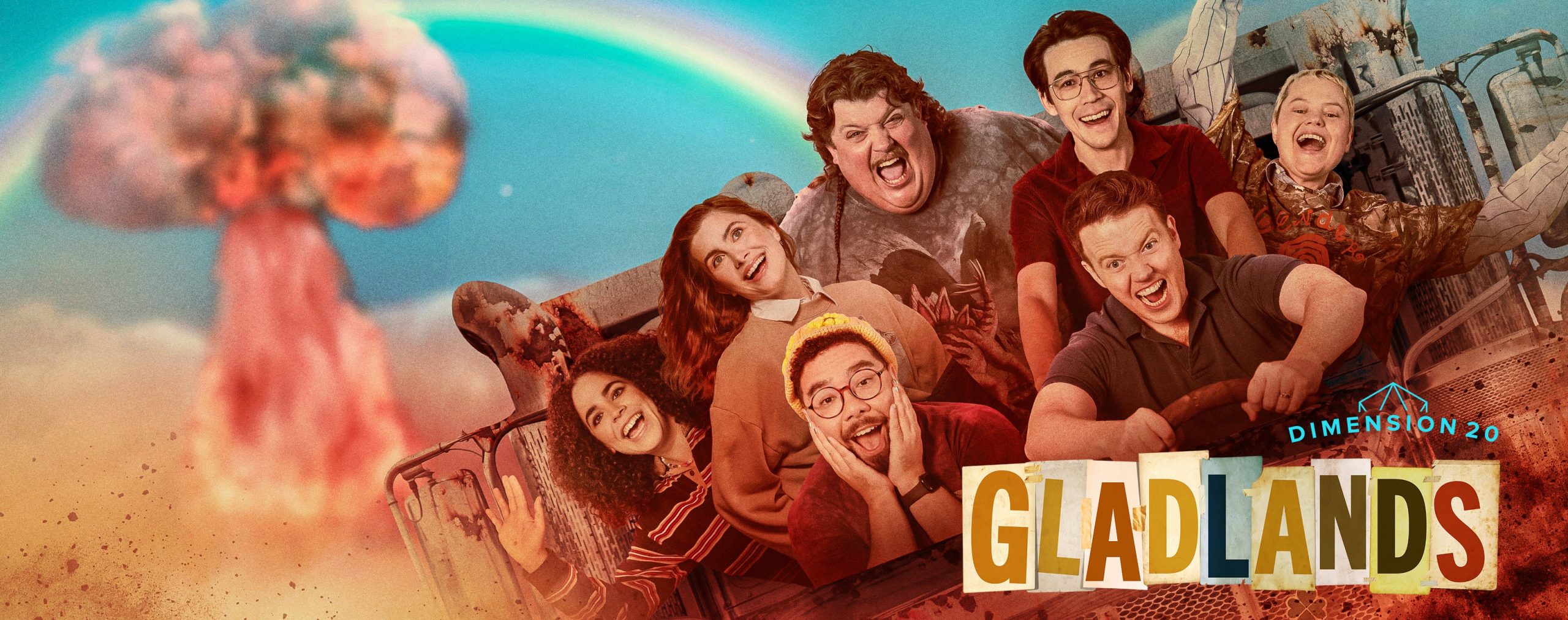
Sometimes, it takes everything falling apart for us to remember that community is what holds us together.
It’s a lesson that many people have learned in recent months. Amidst the ongoing attacks against LGBTQ+ and immigrant populations, folks across the country have come to realize just how important community is to each of our daily lives.
Now more than ever, marginalized communities need to remember that oppressors have always used grief to further disenfranchise the people they’re attacking. And that, as laughable as it seems at times, the best response to others’ hatred is to love one another; to foster strength and joy amongst our own groups to ensure we have the fortitude necessary in the ongoing fight against bigotry. Many projects have tried to remind folks of this message…and one just so happens to be a tabletop roleplaying game (TTRPG) set in a post-apocalyptic — and so, so queer — wasteland.
Gladlands is the latest season of Dimension 20, a renowned TTRPG liveplay series that sees groups of LA-based performers tackle some chaotic new narrative every season. The show’s newest installment takes place in a barren wasteland, with all cities and symbols of civilization reduced to rubble after a multi-year ecological crisis (which just so happens to resemble the one we’re currently fighting right now). The cast, which features a majority LGBTQ+ group of LA-based comedians, plays a team of folks trying to help as many people in this hellscape as possible, reminding every survivor they come across that it’s easiest to get through the hard times when we’re in them together.
The cast of Gladlands sat down with the LA Blade to discuss this poignant message and how it feels to deliver it when folks need it most. They speak about their roles in the series, their personal lives as local artists in Los Angeles, and how it’s fun pieces of media like this that can get folks through the toughest times. They raved about this complex project and what they hope it will bring to everyone who watches, with each player emphasizing Gladlands’ core message: you are not alone.
As strange as it may seem to people not in the community, it’s not uncommon for role-playing games like Gladlands to touch on issues real people struggle with every day. “It really is transformative,” said Oscar Montoya, who plays the fierce Drag Queen librarian ‘Poppy Persona’ on the season. “There’s a little bit of your soul that goes into every character that you play…and there’s so much self-realization that comes when you play TTRPG that you [may not] even recognize!” It’s a sentiment that fellow player Kimia Behpoornia, who plays the skateboarding cockroach-human hybrid ‘Tess Tube5,’ echoed, stating, “[These games] help people feel so validated.”
The cast reiterated how it’s these sessions of fantasy that often allow people to grow in very real ways. That’s why they believed it was the perfect platform to spread the message of love threaded throughout Gladlands, a season that sees their group of apocalyptic advocates — members of the legendary ‘Carer-Van’ — drive across an endless desert in search of anyone who needs help. An eclectic group of humans and mutants, each episode sees them work hard to see the good in their fellow person and flex their many skills to assist those in need.
“It’s really nice that this season is here [during a time] when it really resonates,” Kimia went on. “But it’s kind of the simplest idea [ever] to want to help your community!” Vic Michaelis, whose plague mask-wearing character ‘Hugi’ is the apocalypse’s only mortician, stressed that the show’s message is one that everyone needs to remember right now. “We’re living during a time [when] community is very important…but there’s no way [when we were filming] that we would’ve known the season would come out at a time like this. But [we are] watching people dig down right now and go, ‘We are taking care of our community.’” They reminded everyone watching that this kind of communal care is not only inspiring, but also threatening, saying, “That strikes fear amongst people in power. There is success in coming together to protect your community, [which I think] reflects the themes of Gladlands.”
“Trying to stay glad is, in itself, a form of resistance,” Agreed Jacob Wysocki, who portrays the warm and cuddly caretaker KoKoMo. He detailed how, through their characters, each player hoped to offer viewers models of the many behaviors that allow real communities to flourish. On that in particular, he gave credit to the season’s dungeon master, Brennan Lee Mulligan, saying, “He built this world because he looked at the [real] world we’re in and [asked], ‘Does it take a fully post-apocalyptic world to get to a space where community [comes] first?’”
“Baby — we live in the post-apocalyptic times right now!” Said Montoya, whose time as a Los Angeles activist has given him special insight into how this city’s communities have been struggling. “[But] I think the important thing to realize is that we create our own Gladlands…the message of community coming together to combat adversity is so paramount, especially right now. To have a collection of people you can lean on and say, ‘We don’t like this. We don’t stand for this. Let’s create something together.”
Each cast member agreed that, while a lovely sentiment, the messages broadcast through their show are easier said than done. But they each emphasized that you don’t need to be part of a roving band of super-powered caretakers to do good — and that no matter what, this kind of work should never be done in solitude. “[Remember] you’re not in it alone,” emphasized Montoya, as the interviews came to an end. “You are a part of a community that can enact change. And know: they’re trying to take that away from us. They’re trying to make us feel smaller and less than. [But] you have to recognize that we have the power…especially when it feels so overwhelming. Because it is then that you have people who have your back, who will continue to have your back [no matter what].”
An uplifting message of community, wrapped up in a chaotic season of jaw-dropping dice rolls and truly wild character arcs. Gladlands showcases that, sometimes, the most important lessons come in the most surprising packages. And, with each of these performers at the helm, it highlights the core message of this series as a whole: you’re never alone in the fight for community. And true freedom starts with being there for your neighbors, making sure that you all have what you need for whatever may come next.
a&e features
Tello Films: Celebrating 19 years of lesbian storytelling
Tello Films proves that, after 19 years, independent lesbian filmmaking is as necessary as ever.
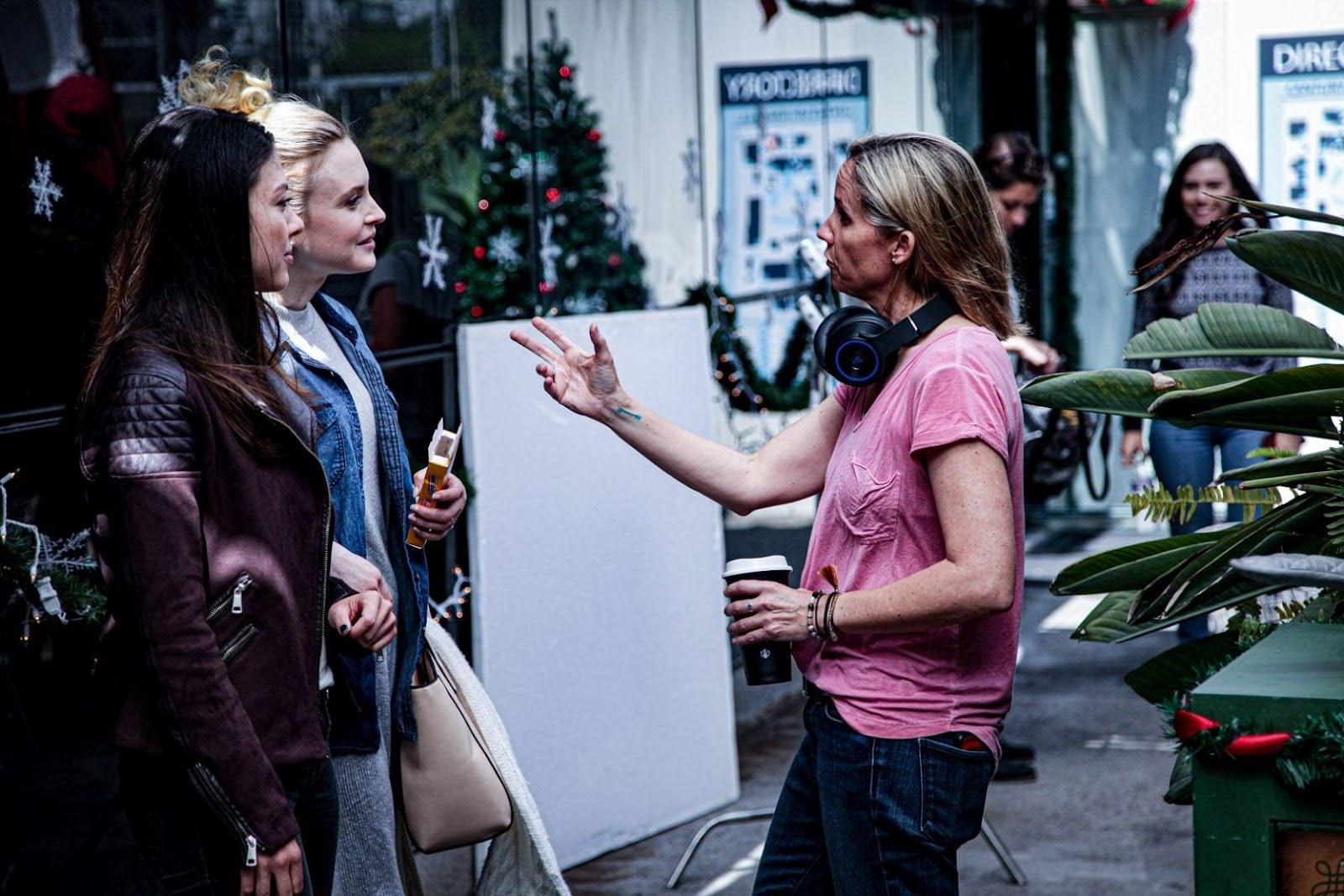
In an era where LGBTQ representation in movies has hit a three-year low, Tello Films proves that, after 19 years, independent lesbian filmmaking is as necessary as ever. According to Sarah Kate Ellis, the CEO and President of GLAAD, “Nearly ⅓ of non-LGBTQ Americans say that LGBTQ inclusive films have changed their perception of our community… It is imperative that networks and streamers do not back down.”
Meanwhile, the lesbian streaming service Tello Films celebrated its 19th birthday on February 6th. Says founder Christin Baker, “When I started it 19 years ago, I thought at some point maybe we wouldn’t be necessary, […] I really do feel like representation saves lives…it’s still important for us to be around.” Often referred to as the “Lesbian Netflix”, the Nashville-based production company has a primary focus on lesbian and sapphic stories for the past 19 years and thankfully, is just getting started.
Tello Films was far ahead of its time. For those of you who didn’t live through or don’t remember, 2007 was a different time. Apple debuted the first iPhone, Barack Obama declared his run for the presidency, and the phrase “that’s so gay!” was prevalent as ever (at least at my high school). “We didn’t have marriage equality at that time. Civil unions were kind of starting here and there -the crazy thing (is that) ‘Don’t Ask Don’t Tell’ was still in effect.” Baker recalls, “There were still so many rights we didn’t have in 2007 when we started it, and we are still fighting for it.”
Tello Films’ beginnings were just the start of the lesbian legacy. Said Christin, “I never thought Tello would or could ever be my full-time job.” With the URL TelloFilms.com registered on February 6, 2007, the platform was an internet-based streaming company with all its movies formatted small to appease a 2007-era browser. While Netflix was only just beginning to offer streaming services, launching any streaming service in 2007 was bold; to launch a streaming service entirely devoted to lesbian and sapphic stories was revolutionary. “I want to make lesbian stories.. I want to see things that represent me.”
In the past 19 years, Baker shares her career-defining moment came from the recently deceased Nancylee Myatt, showrunner for South of Nowhere. “We made a short-form series called Cowgirl Up. I felt like I put my big girl pants on. Nancylee was a huge mentor, and I was like, ‘Oh, I can do this. I can do this, and I can figure it out.’”
Tello went on to receive their first primetime Emmy nomination with Mindy Sterling of Austin Powers fame for Outstanding Actress in a Short Form Comedy or Drama Series. “We got two daytime Emmy nominations for two actresses, Liz Vassey and Carolyn Radere […], then in 2018 we made our first lesbian Christmas movie,, Season of Love and that really kind of started us down the path, and I think we’re probably most well known for, which is our lesbian holiday rom-coms.”
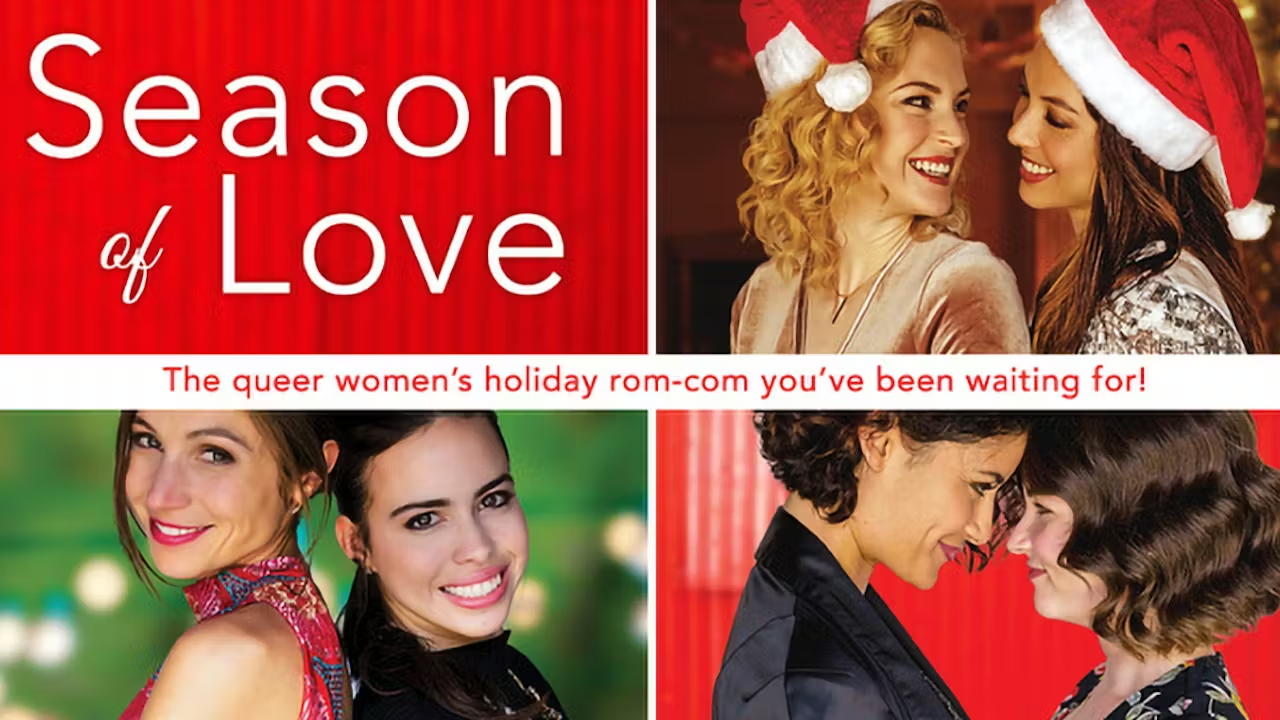
We now live in the era of Chappell Roan, Doechii, Heated Rivalry, and so many more queer artists and pieces of media in the mainstream’s consciousness. The last several years in pop culture have proven that queer art and artists matter, not just as a salve to a society that still struggles to accept us, but to the mass audiences who continue to resonate with it.
Queer media is being devoured by folks outside of the LGBTQ community. “I think it (Heated Rivalry) shocked so many people (because) it was powerful and compelling […] I wasn’t that surprised because I remember Brokeback Mountain being very much in that same vein; it was just cowboys instead of hockey players.” Authenticity and overcoming adversity are not just tenets of good storytelling; they are also ever-present themes within the lives of any queer you know.
As Christin sees it, the success of Heated Rivalry isn’t just rooted in its unabashed sexual themes, it has a very universal “lesbian” approach to its storytelling “There’s a ton of longing, and missing, and having a crush and not knowing if it’s reciprocated, […] there’s a lot that you tap into just on a human level that Heated Rivalry really touched on.”
Themes that are at the forefront of the sapphic stories Tello has mastered telling. “We still don’t have enough LGBTQ holiday Christmas movies out there each year. Some people wouldn’t look at a Hallmark movie or Christmas rom-com as substantive, but I really do feel like representation saves lives.”
For so many in the LGBTQ community, representation isn’t theoretical- it’s personal. I know for myself, in the throes of a messy divorce, one of the only things that brought me comfort was the sapphic films on Tello. It was so difficult to find lighthearted queer stories. I recall searching through every streaming service as they were slowly but surely eliminating the LGBTQ sections from their apps, as well as those queer characters and shows. But not Tello; I was able to find comfort and ease through a tough time in my personal life. “It’s such comfort, especially if you’ve gone through something that’s tough and your regular daily life is stressful, you need an escape to something that you know is not going to cause more anxiety.”
Having accessible ways to both tell and consume sapphic stories is tantamount to this moment in time. Independent filmmaking has the power to make sure authentic stories are heard. Being an independent voice as well as being able to support smaller budget stories that definitely wouldn’t get picked up, or even recognized or seen in mainstream, Christin and Tello Films are uplifting not just lesbian and sapphic stories, but lesbian and sapphic artists as well.
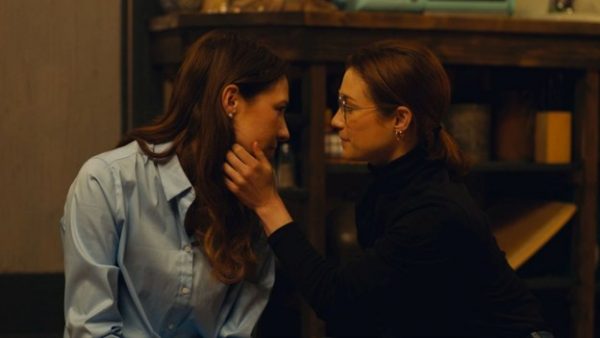
As for the future of lesbian filmmaking, it’s no secret that Hollywood is drowning, leaving a void for people like Christin and Tello Films to fill. Said Baker in light of the shrinkage in Hollywood and what that means for Tello Films, “We will get even more creative and tell even more stories, because we can’t be stopped.”
Encouraged by her fiancée, Stacey Lee Powell, Christin wants the world to know that Tello Films isn’t just a business, it’s personal. “I see Tello as an extension of me.” Says Baker, “In doing that, I hope that people see that Tello isn’t some corporate entity, I hope they see that it is someone who cares deeply. I’ve been doing this for 19 years, and every day I wake up trying to figure out how to tell our stories and how to serve our community.” Nineteen years later, Tello Films remains what it has always been: not a nameless, faceless corporation, but an extension of a storyteller’s dream to build a safe space for her community.
Check out TelloFilms.com
a&e features
From ‘So Random’ to sexy theater: LA’s very own Mathew Scott Montgomery
This former Disney star breaks down their new play, ‘Foursome,’ and the security of performance.
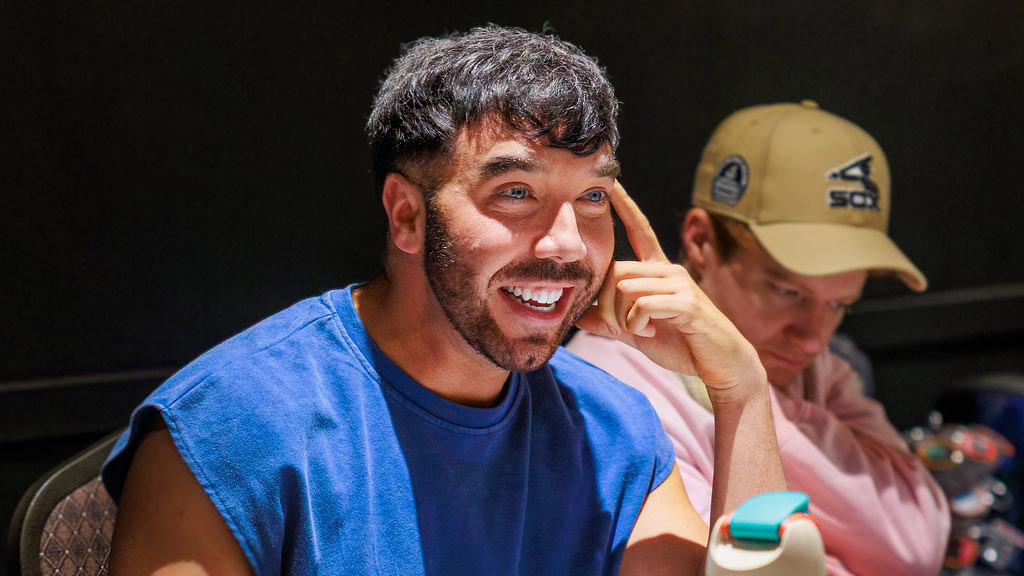
Even in a Los Angeles filled with experimental theater, few projects have been as brazenly sexual as the IAMA and Celebration’s Foursome. Following a quartet of queer friends as they embark on a weekend getaway, this play watches as they uncover the secrets (and attractions) that have always lurked in the shadows of their longtime friendships. Filled with niche community references, heartfelt vulnerability, and some of the spiciest live sex scenes audiences will ever see, Foursome is proving itself as an innovative look into queer sexuality — and none of it would have been possible without The Disney Channel.
Matthew Scott Montgomery began his career on Disney with one goal: pull focus. He quickly found out that he was a tad too good at this; in his conversation with the LA Blade, he detailed the many times his early onscreen performances were cut down because he was considered ‘too distracting.’ From starring as an extra in Zendaya’s Shake It Up to leading the SNL-style So Random!, his childhood career saw Montgomery flexing the bombastic personality he still carries today. And while the goal of this interview was to speak with the performer about Foursome and his time with Disney, the first few minutes were spent discussing an equally important portion of the man’s life: the Hilary Duff concert he’d seen at The Wiltern the night before.
“[I’d] spent all day in rehearsals with three of the best queer actors in the world, and [then I left] to go to a Hilary Duff concert in LA with my boyfriend, as a gift from [Demi Lovato],” raved Matthew. “I burst into tears because it hit me: none of this would’ve happened if I hadn’t come out…I wish I could go back to ten-year-old me back in North Carolina and [tell him], ‘One day, you’re going to leave your gay play rehearsal, [meet up] with your boyfriend, and go to a Hilary Duff concert. And everything is going to be okay.”
Matthew remembered this little kid from a conservative hometown who dreamt of nothing more than boyfriends and Lizzie Maguire in concert. He explained that his area of North Carolina didn’t allow for any level of dramatics from young boys — something that definitely didn’t mesh with this gay child who felt safest when he was onstage.
“When I was a kid, I used to record episodes of Will and Grace [on the VCR], write down the dialogue, then go into my room and run the scenes [when everyone was asleep]…I’ve always identified as an artist, and I was desperate to perform,” said Matthew, reminiscing on his early days as an artist. “I think the safest place in the world is on stage or in front of a camera, because you know exactly what you’re going to say. You know what your lines are, which mark you’re gonna hit…everyone is watching you, and you’re being perceived, and it feels so safe. I get nervous off camera, because then you don’t have a map of what’s happening.”
Performance has always served as both a passion and a safety for the actor, with Montgomery laughing at the many years he spent acting out his favorite shows in the sanctity of his childhood bedroom. Luckily, he eventually took these skills to a giant stage most kids could only dream of: The Disney Channel.
After years of hearing the terrible experiences of so many child actors, it’s heartening to learn how validating Montgomery’s early time on TV was. He told stories of Disney gigs and fun hangouts with queer stars like Haley Kiyoko and Demi Lovato, people who he still considers close friends today. “We would talk about our queerness and how to navigate it,” he said, showing love to the tight-knit network that these closeted children created for one another. It was because of their support that he had the courage to come out in his early 20s, with this new self-acceptance allowing Matthew to take on openly queer projects and even begin writing his own — cue Foursome, his latest creation and certainly the sexiest one yet.
Foursome sees the actor as Noah, a young man whose weekend at a cabin with three friends turns into a night of revelry as loosened inhibitions lead to shocking confessions. On why he created a project centered on modern sexuality, he explained, “I think there’s a really beautiful thing about the queer community where we can love each other through different evolutions of our friendships…this play is really about celebrating that freeness, and having a very frank discussion about what it means to be a queer person in a relationship in the modern day.”
The project douses this exploration into contemporary sexuality with so much pop symbolism that it’ll be relatable for any LGBTQ+ person watching. From the pop songs our main cast sing to the community-based slang they throw at one another, the writer wanted to instantly clue queer watchers into the fact that this was made for them by one of their own. And it’s that, he stressed, that is the goal of not only Foursome, but his entire career: making other people feel seen.
“What’s most important to me is queer joy,” Matthew stated, as the conversation came to an end. “Showing queer people having a good time…I think that can be a radical thing, especially with the way the world is right now. We’re going to be gay, and we’re going to be fun, and [our goal] is to have you join us in that fun.” He promises that Foursome will be a summation of his decades-long career of making people laugh, combining his uniquely gut-busting brand of humor with an earnest discussion around how our communities form relationships outside of heteronormative ideals. He invites everyone to come see Foursome and, in its nonstop joy, hopes that by creating this kind of inclusive art piece for viewers, he’ll be imparting onto them some of the security he’s always felt onstage.
And when asked if he had any final enticements for potential watchers, Montgomery adorned the smile that he’s worn since his Disney days and stated, “Well, we do say that the title, Foursome, is a promise — and we absolutely deliver.”
Foursome will have its world premiere with IAMA Theatre Company, produced in association with Celebration Theatre. Performances are at the Atwater Village Theatre, 3269 Casitas Avenue, Los Angeles, and plays now through March 23. Tickets ($30-$45) are available at iamatheatre.com
a&e features
Angel McCoughtry, “Renaissance Woman”
Angel McCoughtry is a professional athlete. A two-time gold medalist, 5-time WNBA all-star, philanthropist, and now filmmaker.

“Renaissance Woman” is a term fit for a queen. Heavy is the head that wears the crown, but we’re in luck because Angel McCoughtry is a professional athlete. A two-time gold medalist, 5-time WNBA all-star, philanthropist, and now filmmaker, Angel has built career(s) defined by reinvention and an insistence on excellence at every turn.
Her move to take charge behind the camera comes at a time that feels anything but divine. In a time where stories like Heated Rivalry bring the heat (pun intended) one moment, while nearly half of all queer characters and stories are vanishing from TV the next, McCoughtry’s leadership behind the camera signals something hopeful: A refusal to let anyone or any story get left behind.
A WNBA legend, McCoughtry played ten years without pause, splitting her time between the W and overseas leagues. In college, she led the Big East Conference in scoring, rebounds, and steals, obliterating records, even the ones she herself set. The number one draft pick and Rookie of the year in ‘09, McCoughtry quickly became one of the best players the W has ever seen. Though she never officially retired, Angel hasn’t played in the W since 2022, when she was sidelined for an injury that she has since healed. (Ya hear that WNBA? Our girl is ready to come back!)
Being forced to step away from the game brought about a reckoning that is all too familiar to elite athletes everywhere: “Who are you when your body won’t let you perform?” Through detangling this identity crisis, McCoughtry found a new appreciation for storytelling, the stories we tell ourselves as well as the stories we tell the world. Angel’s innovative storytelling and directing style are inspired by basketball, as she likens herself to the Dawn Staley of film, adding, “When you allow your players to be free, they can play at their highest level, and that’s what I allow my actors to do.”
Inspired by her grandmother’s stories of playing ball in a time when women were not allowed to cross half court and had to wear skirts, Angel wants to empower resilient perspectives. “I can’t keep their stories hidden,” She says, “The women who paved the way.” Laser focused on bringing scripted sports films to the mainstream, McCoughtry says, “I’m looking for stories that resonate with the people, and I want to be the one to bridge the gap and bring women’s sports scripted content to the forefront.”
Through McCoughtry Entertainment, Angel wants to bring women’s sports to the forefront as well as genre-driven films, particularly sports-thrillers led by women. Her short film Bygones is now available to stream on Prime Video, with more projects in the barrel. Her feature-length directorial debut, Bolted, is on deck as her next project. I personally would love to see the gay women’s version of Heated Rivalry in McCoughtry’s hands, who says, “There’s a realness to it,” about the show, “That happens often, and it’s not talked about [..] that’s all over women’s sports.”
“I am obsessed with stories about overcoming adversity,” says McCoughtry, an apt throughline in Angel’s work that reflects the spirit of creativity and athleticism.
a&e features
Alexander Skarsgård describes ‘Pillion’ in 3 words: lube, sweat, leather
Highly anticipated film a refreshingly loving look at Dom-sub life
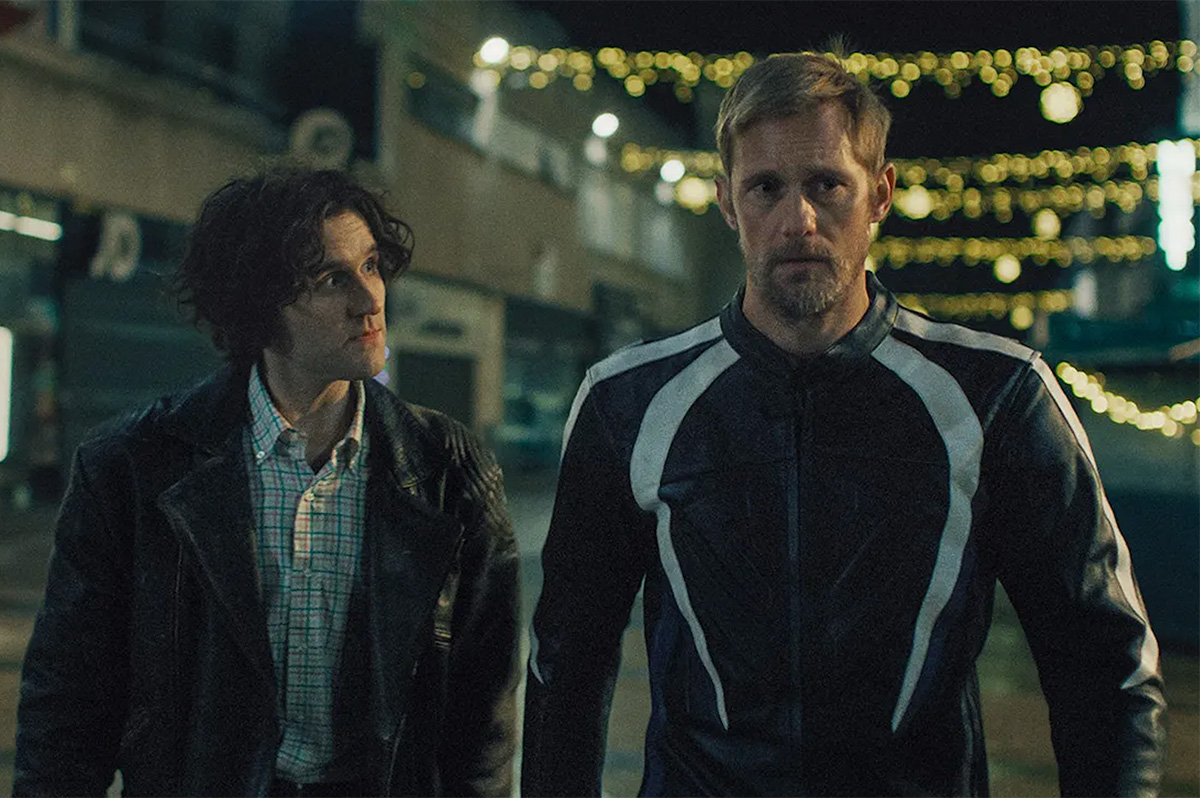
Whether you’ve seen him in popular HBO series like “True Blood,” “Succession,” and “Big Little Lies,” the dynamic Swedish actor Alexander Skarsgård has that smoldering gaze that immediately draws viewers in.
Following in the footsteps of his father Stellan, (who just won the Golden Globe for “Sentimental Value”) the Golden Globe, Emmy, and SAG winner Skarsgård continues to be an actor who is fearless in the roles he takes on.
That courageousness is evident in Skarsgård’s latest film, the BDSM black comedy “Pillion,”which he also executive produces. He plays Ray, the handsome, hyper-dominant leader of a gay bike gang. The film was written and directed by Harry Lighton, and is based on the 2020 novel “Box Hill,” by Adam Mars-Jones.
“This was a small film by a first time filmmaker and it wasn’t financed when I read it,” Skarsgård told journalists at a recent awards news conference. “And I felt that, if I could help in any small way of getting it financed, I wanted to, because I thought it was such an incredible screenplay and I believe in Harry Lighton so much as a filmmaker. And it felt tonally unlike anything I’d ever read. It was such an exciting, surprising read.”
Skarsgård was blown away by the quality of the unconventional script. “When I heard BDSM relationship, biker culture, I expected something very different. I didn’t expect it to have so much sweetness and tenderness and awkwardness.”
For the sex scenes and nudity with co-star, Harry Melling — who excels in his portrayal as Ray’s submissive Colin — Skarsgård talked very early on with Lighton about how he wanted to shoot those scenes, and why they were in the film.
“I often find sex scenes quite boring in movies because a lot of the tension is in the drama leading up to two people hooking up, or several people hooking up, as in our movie. But what I really enjoyed about these scenes — they are all pivotal moments in Colin’s journey and his development. It’s the first time he gets a blowjob. It’s the first time he has sex. It’s the first time he has an orgasm. And these are pivotal moments for him, so they mean a lot. And that made those scenes impactful and important.”
Skarsgård was happy that Lighton’s script didn’t have gratuitous scenes that shock for the sake of just shocking. “I really appreciated that because I find that when this subculture is portrayed, it’s often dangerous and crazy and wild and something like transgressive.”
He continued: “I really love that Harry wanted it to feel real. It can be sexy and intense, but also quite loving and sweet. And you can have an orgy in the woods, rub up against a Sunday roast with the family. And that kind of feels real.”
One of the obstacles Skarsgård had to work with was Ray’s emotionally distant personality.
“Ray is so enigmatic throughout the film and you obviously never find out anything about him, his past. He doesn’t reveal much. He doesn’t expose himself. And that was a challenge to try to make the character interesting, because that could easily feel quite flat…That was something that I thought quite a lot about in pre production…there are no big dramatic shifts in his arc.”
For the film, Lighton consulted the GMBCC, the UK’s largest LGBT+ biker club, attending their annual meetup at which 80 riders were present.
“Working with these guys was extraordinary and it brought so much texture and richness to the film to have them present,” said Skarsgård. “They were incredibly sweet and guiding with us — I can’t imagine making this movie without them. I’d go on a road trip with them anytime.”
Added Skarsgård: “To sum up ‘Pillion’ in three words: lube, sweat, and leather. I hope people will connect with Colin and his journey, and come to understand the nuance and complexity of his bond with Ray.”
This year is shaping up to be a busy one for Skarsgård. “Pillion” premieres in select cities on Feb. 6 and then moves into wide release on Feb. 20. After that for Skarsgård is a role in queer ally Charli XCX’s mockumentary, “The Moment,” which premieres at the Sundance Film Festival. HIs sci-fi comedy series, Apple TV’s “Murderbot,” which he also executive produces, will begin filming its second season. And this weekend, he hosts “Saturday Night Live.”
a&e features
“I just kept showing up”: Broadway veteran Marc Shaiman reflects on musical success stories
In his new memoir, Marc Shaiman reflects on his dream job composing music for ‘Mary Poppins Returns’ and the “nightmare” experience that was working on the show ‘Smash’
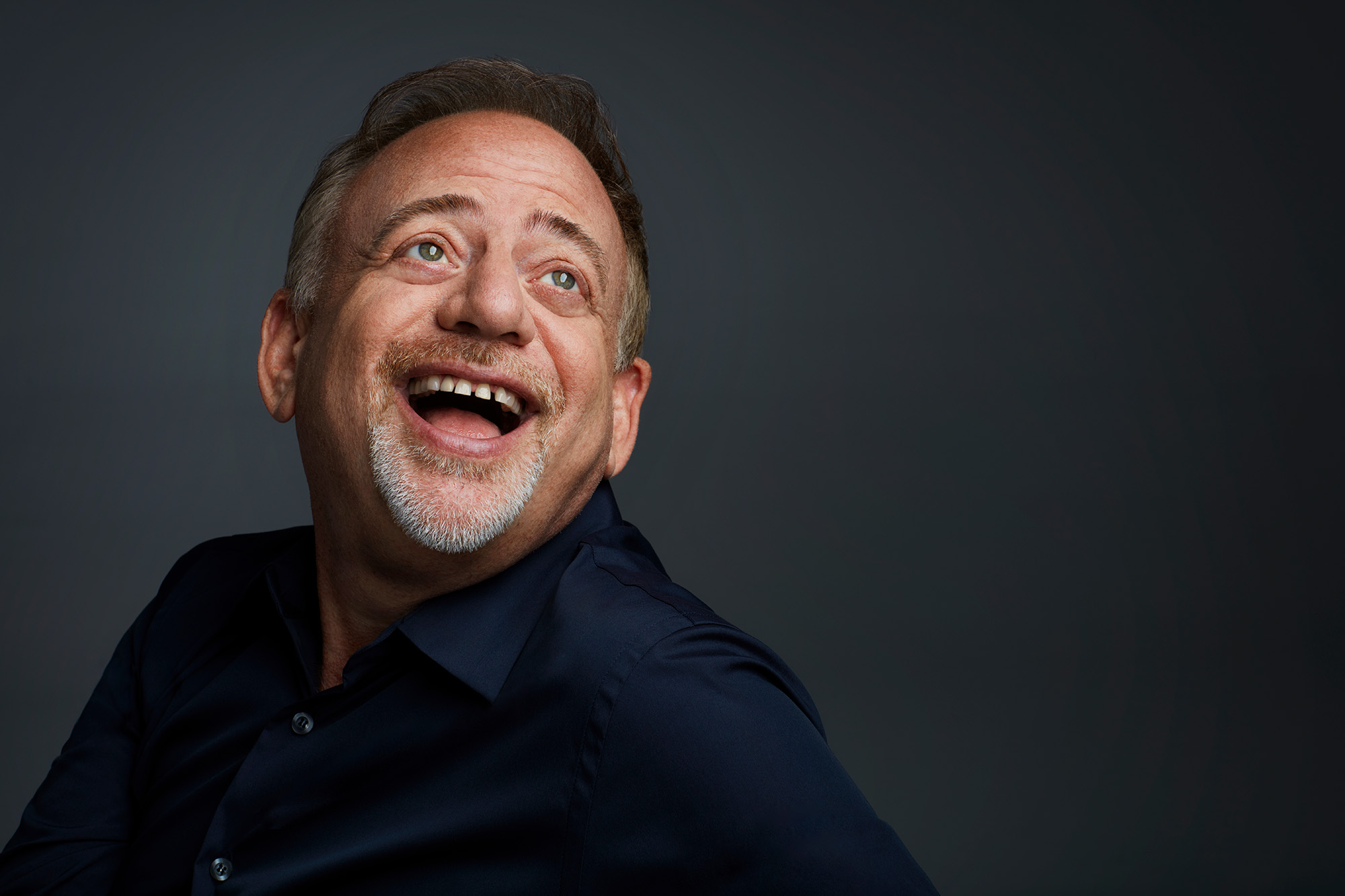
If you haven’t heard the name Marc Shaiman, you’ve most likely heard his music or lyrics in one of your favorite Broadway shows or movies released in the past 50 years. From composing the Broadway scores for Hairspray and Catch Me if You Can to most recently working on Only Murders in the Building, Hocus Focus 2, and Mary Poppins Returns, the openly queer artist has had a versatile career — one that keeps him just an Oscar away from EGOT status.
The one thing the award-winning composer, lyricist, and writer credits with launching his successful career? Showing up, time and time again. Eventually, he lucked out in finding himself at the right place at the right time, meeting industry figures like Rob Reiner, Billy Crystal, and Bette Midler, who were immediately impressed with his musical instincts on the piano.
“Put my picture under the dictionary definition for being in the right place at the right time,” Shaiman says. “What I often try to say to students is, ‘Show up. Say yes to everything.’ Because you never know who is in the back of the theater that you had no idea was going to be there. Or even when you audition and don’t get the part. My book is an endless example of dreams coming true, and a lot of these came true just because I showed up. I raised my hand. I had the chutzpah!”
Recalling one example from his memoir, titled Never Mind the Happy: Showbiz Stories from a Sore Winner ( just hit bookshelves on January 27th), Shaiman says he heard Midler was only hiring Los Angeles-based artists for her world tour. At the young age of 20, the New York-based Shaiman took a chance and bought the cheapest flight he could find from JFK. Once landing in L.A., he called up Midler and simply asked: “Where’s rehearsal?”
“Would I do that nowadays? I don’t know,” Shaiman admits. “But when you’re young and you’re fearless … I was just obsessed, I guess you could say. Maybe I was a stalker! Luckily, I was a stalker who had the goods to be able to co-create with her and live up to my wanting to be around.”
On the occasion of Never Mind the Happy’s official release, The Blade had the opportunity to chat with Shaiman about his decades-spanning career. He recalls the sexual freedom of his community theater days, the first time he heard someone gleefully yell profanities during a late screening of The Rocky Horror Picture Show, and why the late Rob Reiner was instrumental to both his career and his lasting marriage to Louis Mirabal. This interview has been edited and condensed.
Naturally, a good place to start would be your book, Never Mind the Happy. What prompted you to want to tell the story of your life at this point in your career?
I had a couple of years where, if there was an anniversary of a movie or a Broadway show I co- created, I’d write about it online. People were always saying to me, “Oh my God, you should write a book!” But I see them say that to everybody. Someone says, “Oh, today my kitten knocked over the tea kettle -” “You should write a book with these hysterical stories.” So I just took it with a grain of salt when people would say that to me. But then I was listening to Julia Louis-Dreyfus’ podcast, and Jane Fonda was on talking about her memoir — not that I’m comparing myself to a career like Jane Fonda’s — but she felt it was time to take a life review. That really stuck in my head. At the time, I was sulking or moping about something that had not gone as well as I wished. And I guess I kind of thought, “Let me look back at all these things that I have done.” Because I have done a lot. I’m just weeks short of my 50th year in show business, despite how youthful I look! I just sat down and started writing before anyone asked, as far as an actual publisher.
I started writing as a way to try to remind myself of the joyous, wonderful things that have happened, and for me not to always be so caught up on what didn’t go right. I’ve been telling some of these stories over the years, and it was really fun to sit down and not just be at a dinner party telling a story. There’s something about the written word and really figuring out the best way to tell the story and how to get across a certain person’s voice. I really enjoyed the writing. It was the editing that was the hard part!
You recall experiences that made you fall in love with the world of theater and music, from the days you would skip class to go see a show or work in regional productions. What was it like returning to those early memories?
Wonderful. My few years of doing community theater included productions that were all kids, and many productions with adults, where I was this freaky little 12-year-old who could play show business piano beyond my years. It was just bizarre! Every time a director would introduce me to another cast of adults, they’d be like, “Are you kidding?” I’d go to the piano, and I would sightread the overture to Funny Girl, and everybody said, “Oh, OK!” Those were just joyous, wonderful years, making the kind of friends that are literally still my friends. You’re discovering musical theatre, you’re discovering new friends who have the same likes and dreams, and discovering sex. Oh my god! I lost my virginity at the opening night of Jesus Christ Superstar, so I’m all for community theater!
What do you recall from your early experiences watching Broadway shows? Did that open everything up for you?
I don’t remember seeing Fiddler on the Roof when I was a kid, but I remember being really enthralled with this one woman’s picture in the souvenir folio — the smile on her face as she’s looking up in the pictures or looking to her father for approval. I always remember zooming in on her and being fascinated by this woman’s face: turns out it was Bette Midler. So my love for Bette Midler began even before I heard her solo records.
Pippin and The Wiz were the first Broadway musicals I saw as a young teenager who had started working in community theater and really wanted to be a part of it. I still remember Pippin with Ben Vereen and all those hands. At the time, I thought getting a seat in the front row was really cool — I’ve learned since that it only hurts your neck, but I remember sitting in the front row at The Wiz as Stephanie Mills sang Home. Oh my god, I can still see it right now. And then I saw Bette Midler in concert, finally, after idolizing her and being a crazed fan who did nothing but listen to her records, dreaming that someday I’d get to play for her. And it all came true even before I turned 18 years old. I just happened to be in the right place at the right time, and met one of her backup singers and became their musical director. I was brought to a Bette Midler rehearsal. I still hadn’t even turned 18, she heard me play and said, “Stick around.” And I’ve stuck around close to 55 years! She’s going to interview me in L.A. at the Academy Museum. Would I have ever thought that Bette Midler would say yes to sitting with me, interviewing me about my life and career?
That’s amazing. Has she had a chance to read the book yet?
She read it. We just talked yesterday, and she wants to ask the right questions at the event. And she even said to me, “Marc, I wasn’t even aware of all that you’ve done.” We’ve been great friends for all these years, but sometimes months or almost years go by where you’re not completely in touch.
In the book, you describe moving between New York and Los Angeles, especially when you started working more in film. As a queer artist, what was your experience finding LGBTQ+ community between the two coasts?
As far as gayness, they’re equally gay! I guess New York tilts a little more. I came to New York in 1976, so during the ‘70s in New York, anything goes! That was the height of sexual freedom and expression, then the ‘80s brought the hideousness of AIDS. For a long time, part of being gay was the endless death that I was surrounded by — losing just about every friend and colleague. My god, when I first started living in L.A., coming out there to work with Bette in the ‘80s, almost every single person I met died by the mid ‘90s. Everyone, everyone was gone. That was unfortunately a huge part of my life, and anyone my age can relate to that. God bless everyone not my age that will hopefully never ever have to experience anything close to the devastation of a funeral every week. Even to say it now, it’s hard to imagine or believe that happened.
But you know, I’m in show business, so there are gay people everywhere and happily so. I’m lucky that I grew up without any kind of shame about that, or a feeling that I needed to hide it. Although I didn’t come out to my parents. It wasn’t until I finally told my mom one day that I had been to yet another funeral, as I was sharing with her about AIDS. That was when she finally said, “Scott is more than your roommate, isn’t he?” And I was like, “Yes.” Why did I pretend? I never pretended anywhere else, and I never pretended about anything else. But I still grew up in a time when – well, I mean, I’m not naive, I know it’s still a time now where a lot of people can’t come out to their family or parents — but I certainly came out a time long before there were people coming out on TikTok for the whole world to see. It was a bit more of a private thing, but I was always happily gay. And dare I say, as I even say in the book, when my libido took off at around 15, and all the other 15 and 16-year-olds were around me, I was the pied piper!
In the spirit of being at the right place at the right time, you almost accidentally became part of The Rocky Horror Show and the immersive, theatrical performances that emerged in those midnight screenings.
We actually started that, which, once again, is hard for me to believe. I went to New York with my friend from community theater, Sal, and we walked by the Waverly Theatre. He said, “Oh, I heard that this movie just opened, I hear it’s really outrageous.” We got in line and really hit it off with these other guys and gals. We went to see it and loved it and said, “Let’s come back tomorrow night!” These strangers that we just met came back too. When Susan Sarandon (who played Janet) holds a newspaper over her head in the rain, Louis Farese is the first person to yell out anything. He yelled, “Buy an umbrella, you cheap bitch!” The audience exploded in laughter. Sal and I were big hams and were like, “We’ve gotta get a laugh. We’ve got to figure out something to say and get a laugh like this!”
You started working in film through your collaborations with director Rob Reiner, who recently passed. What was it like stepping into scoring and making that leap with films like Misery and When Harry Met Sally…?
I was lucky enough, by Billy Crystal introducing me to Rob Reiner, to get the job doing the music for When Harry Met Sally…. But that was arranging existing songs, arranging and orchestrating with Rob. I worked on Beaches (starring Bette Midler) at the same time, and that was the same thing — arranging songs, orchestrating them, co-producing the recordings. Suddenly, I had these two hugely successful soundtrack records I had co-produced, but I had never written a film score or done a student film. Since I was a kid, I had a little theme for when my cat walked across the room. If somebody walked into the room at a party, I would play something funny as they walked in.
Rob had an inkling and called me, “Hey buddy, you want to score my next movie, Misery, a psychological thriller?” I was wondering why he thought I could do that. I had just gotten an agent as I moved to L.A., and even my agent said to Rob, “What makes you think Marc can write a film score?” Rob simply said, “Talent is talent.” That became my agent’s mantra as he got me one job after another, and Rob’s faith in me was just an overwhelming, life-changing thing. He became so important to me, and someone I’ll be thankful for as a colleague and even more so as a friend. For the rest of my life, I’ll be thanking him for that.
He was a true advocate for the LGBTQ+ community, fighting against California’s Proposition 8 same-sex marriage ban by co-founding the American Foundation for Equal Rights in 2009.
Very likely, I wouldn’t be married if it weren’t for Rob and Michelle Reiner. They were intensely a part of the fight to get to the Supreme Court. They were a part of that in all ways — financially, fighting, and showing up vocally. So, besides everything else, I’m the most happily married man on the face of the earth. And I can thank Rob and Michelle for that.
That’s beautiful. As we look back on your career, you’ve worked on everything from Broadway musicals like Hairspray to more recent revivals/sequels like Mary Poppins Returns, which you describe in your book as your dream job. What do you make of how the landscape for these filmed musical adaptations has evolved? It seems like studios are now more apprehensive about promoting them as actual musicals.
Isn’t it crazy? Even after Wicked making billions of dollars, I bet with the next movie musical, they’ll still pretend like it’s not a musical. Even Wicked had commercials where they didn’t sing! It’s so schizophrenic. There’s clearly an audience for them and yet the studios are so afraid. I don’t know. Can you explain it?
I don’t know if I can.
I mean, Mamma Mia! Hairspray the movie was very successful, but did they show singing for the commercials for Hairspray? I don’t remember, but I don’t think they did.
In the book, you mention Cole Escola and other queer artists who are doing exciting things today. Are there any particular actors or recent films and shows that you’ve been impressed by?
Well, god knows Heated Rivalry. My god, what’s going on with that? It’s just so fantastic watching these videos of the straight podcasters crying at episode five. Of course, I watched it for the sexiness of it all, but then I got caught up in it. I cried my fucking eyes out at that episode when he calls his lover down to the rink. I was just like those guys watching those reaction videos.
It shows how schizophrenic this world is. There are so many mean people full of hatred, yet there are also many people full of love who are open to a show like that. It’s phenomenal. I don’t know what’s going to become of this world, but I’m happy I got to live the life I’ve gotten to live. I hope we’re not entering a world where our worst fears are all coming true. This may sound superficial, but even something like Heated Rivalry — I don’t think that’s superficial. It shows there are large numbers of people who get it.
How do you feel as you’re getting ready to share this book and your stories with the world?
It’s not just about me tooting my own horn, though I’d be a hypocrite to say that I’m not to a certain level. It’s also about showing people — if you want to do something, just go out and fucking do it. Just keep at it. I wanted to quit a million times but I didn’t, and just like people told me, something did happen because I just kept showing up.
Never Mind the Happy: Showbiz Stories from a Sore Winner is now available wherever books are sold
-

 a&e features2 days ago
a&e features2 days agoAmy Madigan finds herself on the cusp of Oscar glory. Can she overcome the historic bias against horror performances?
-

 a&e features5 days ago
a&e features5 days agoTaylor Tookes wants you to be your own beauty standard
-

 Television3 days ago
Television3 days agoSexy financial drama ‘Industry’ is feeding the queer community
-

 Commentary2 days ago
Commentary2 days agoLA28: Where is your moral compass?
-

 Books3 days ago
Books3 days agoLove or fear flying you’ll devour ‘Why Fly’
-

 California1 day ago
California1 day agoEquality California has sponsored 12 bills to advance LGBTQ+ rights in the state
-
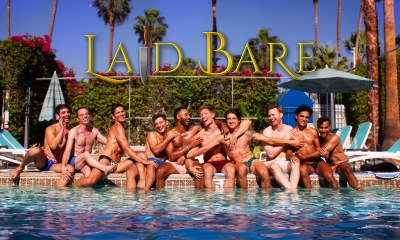
 Television6 hours ago
Television6 hours ago‘Laid Bare’ isn’t your typical sexy slasher

